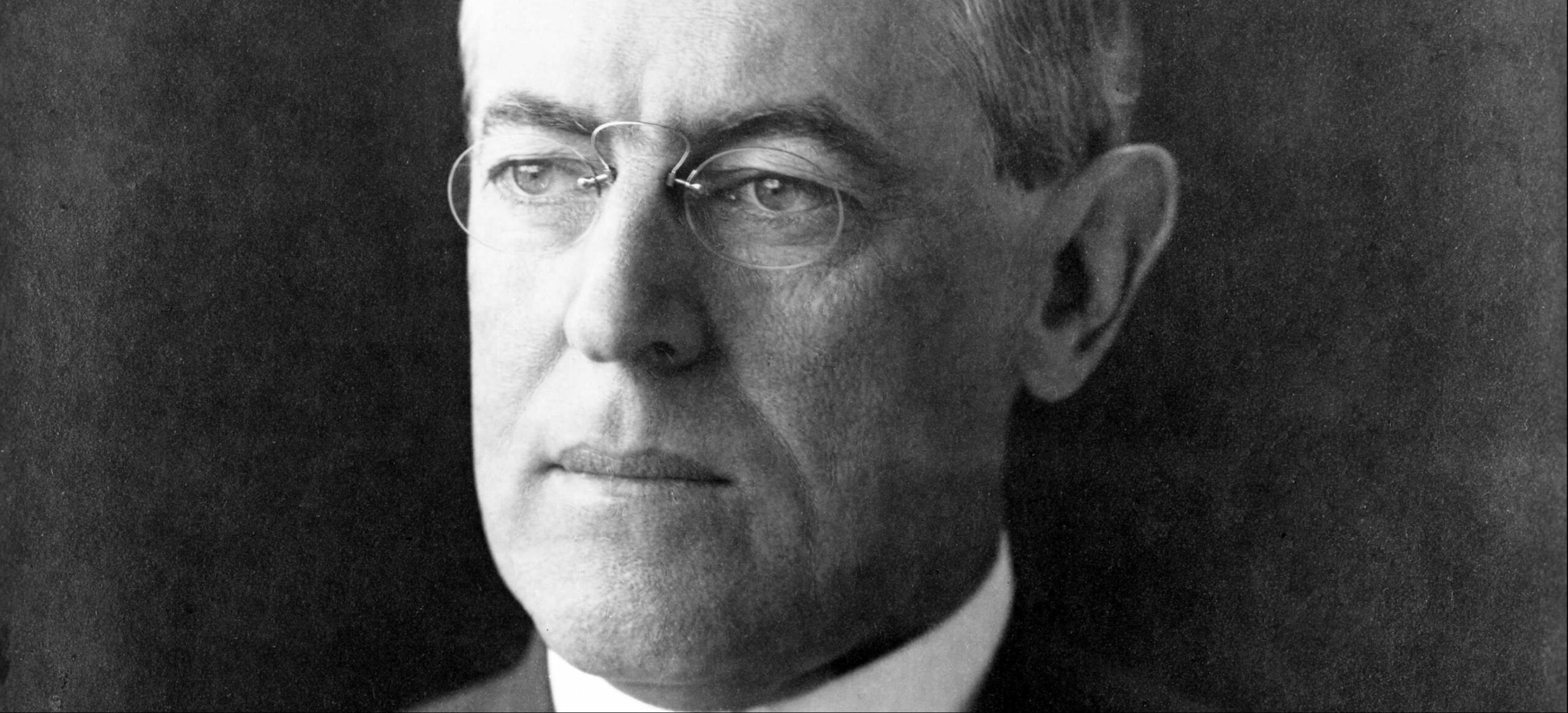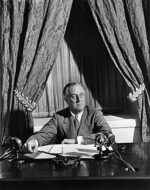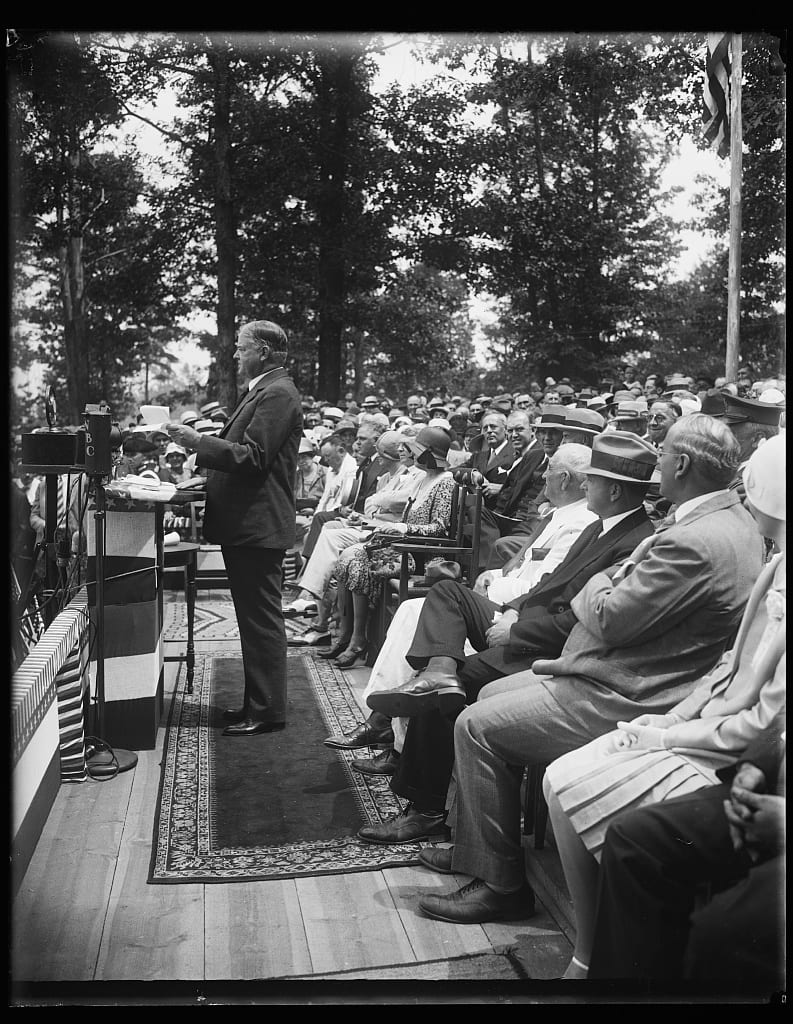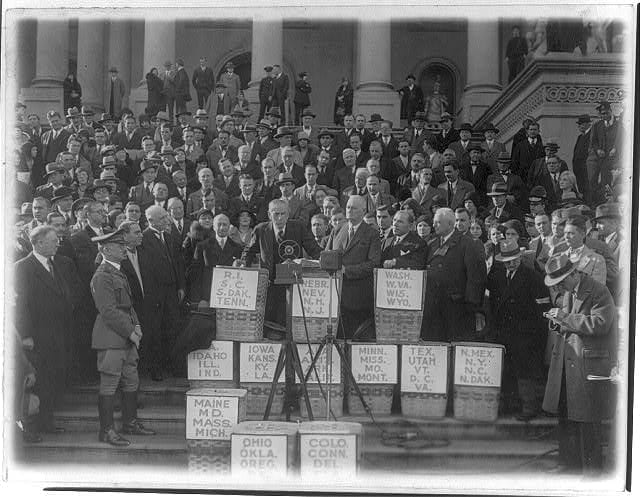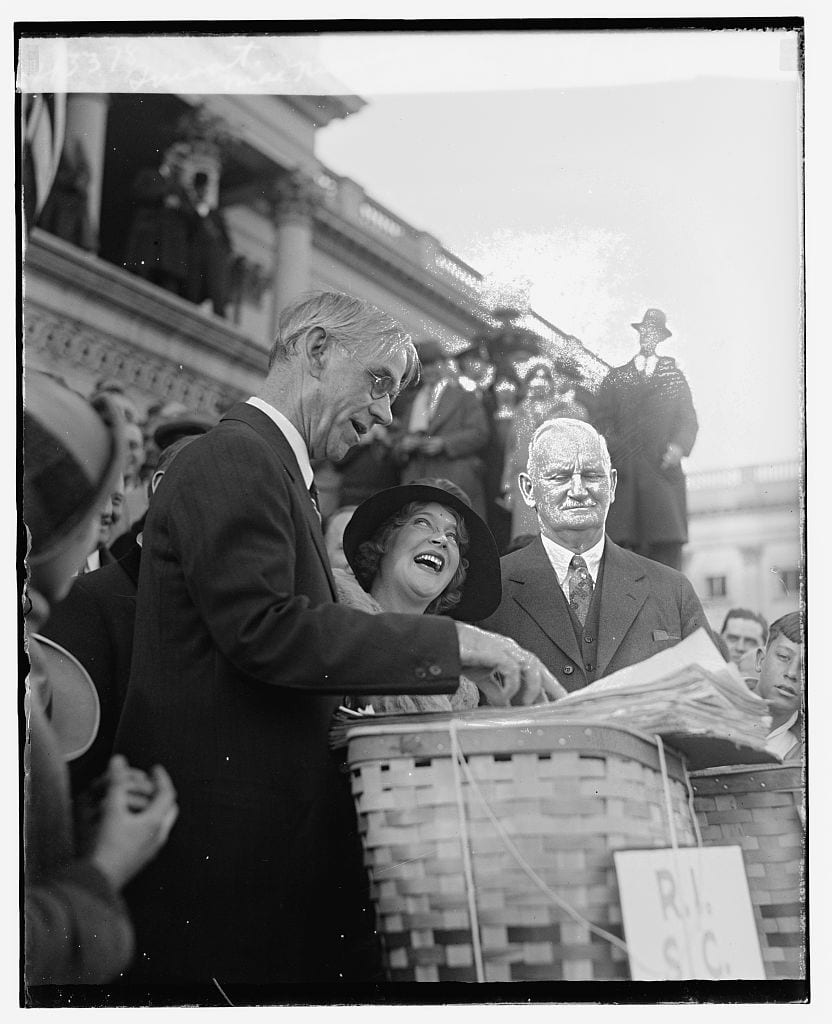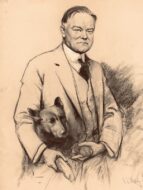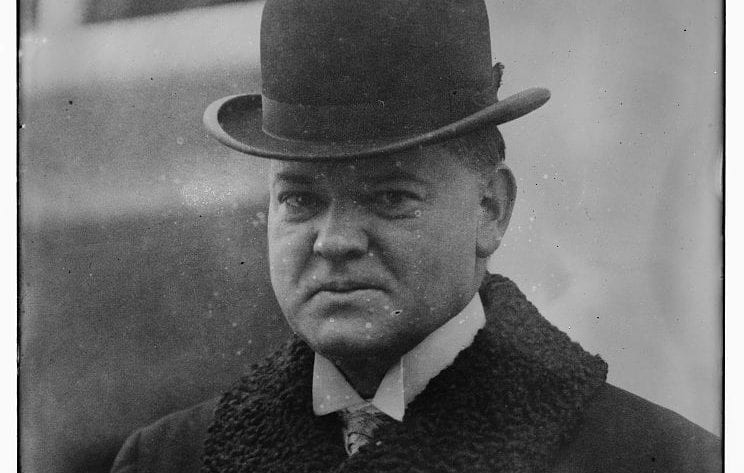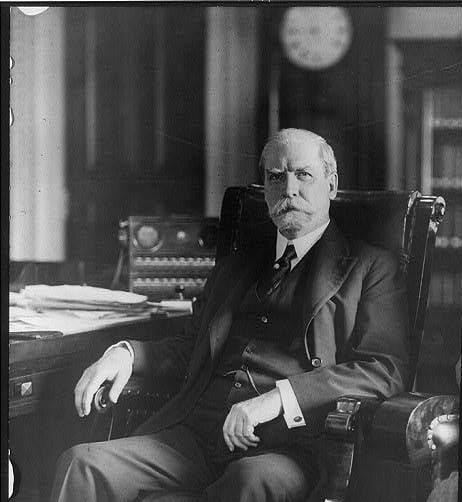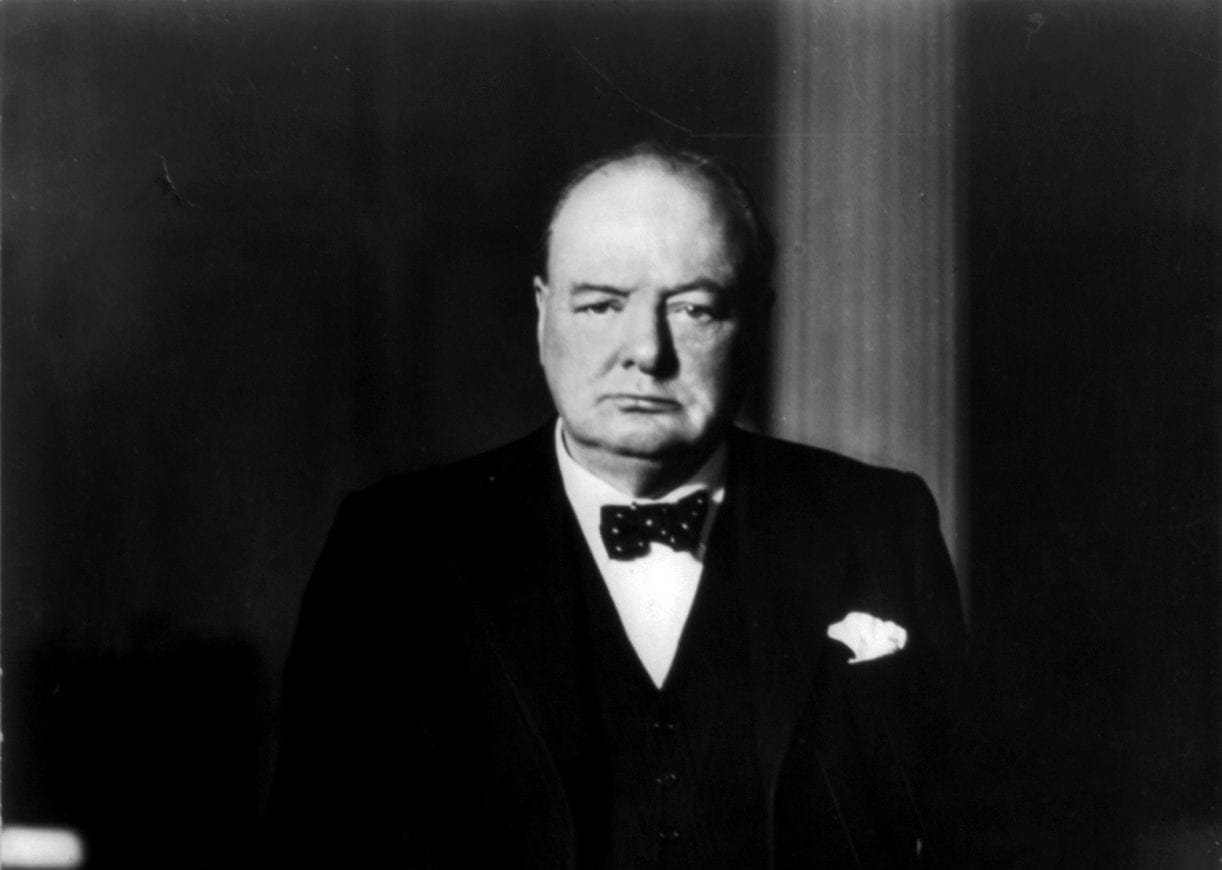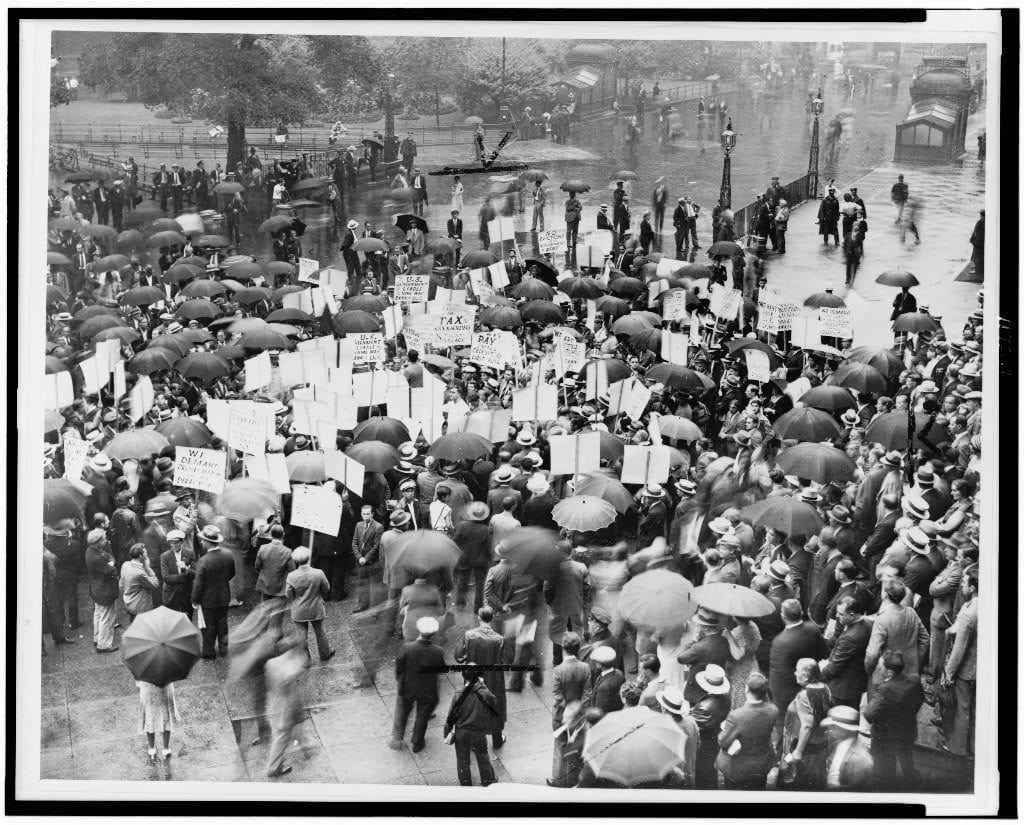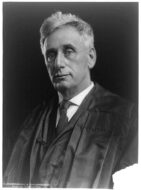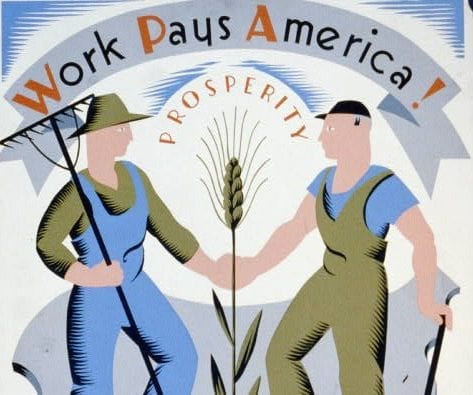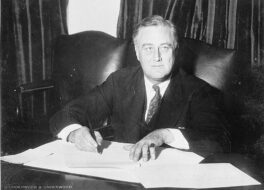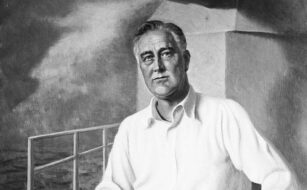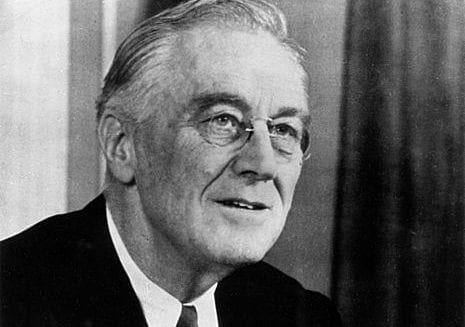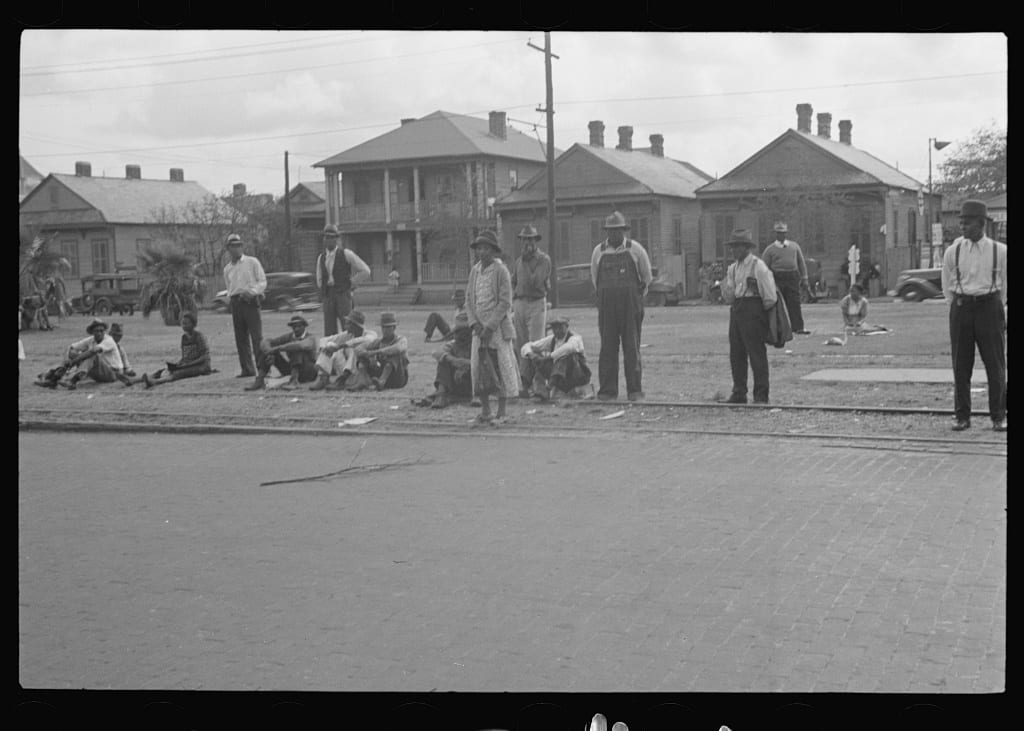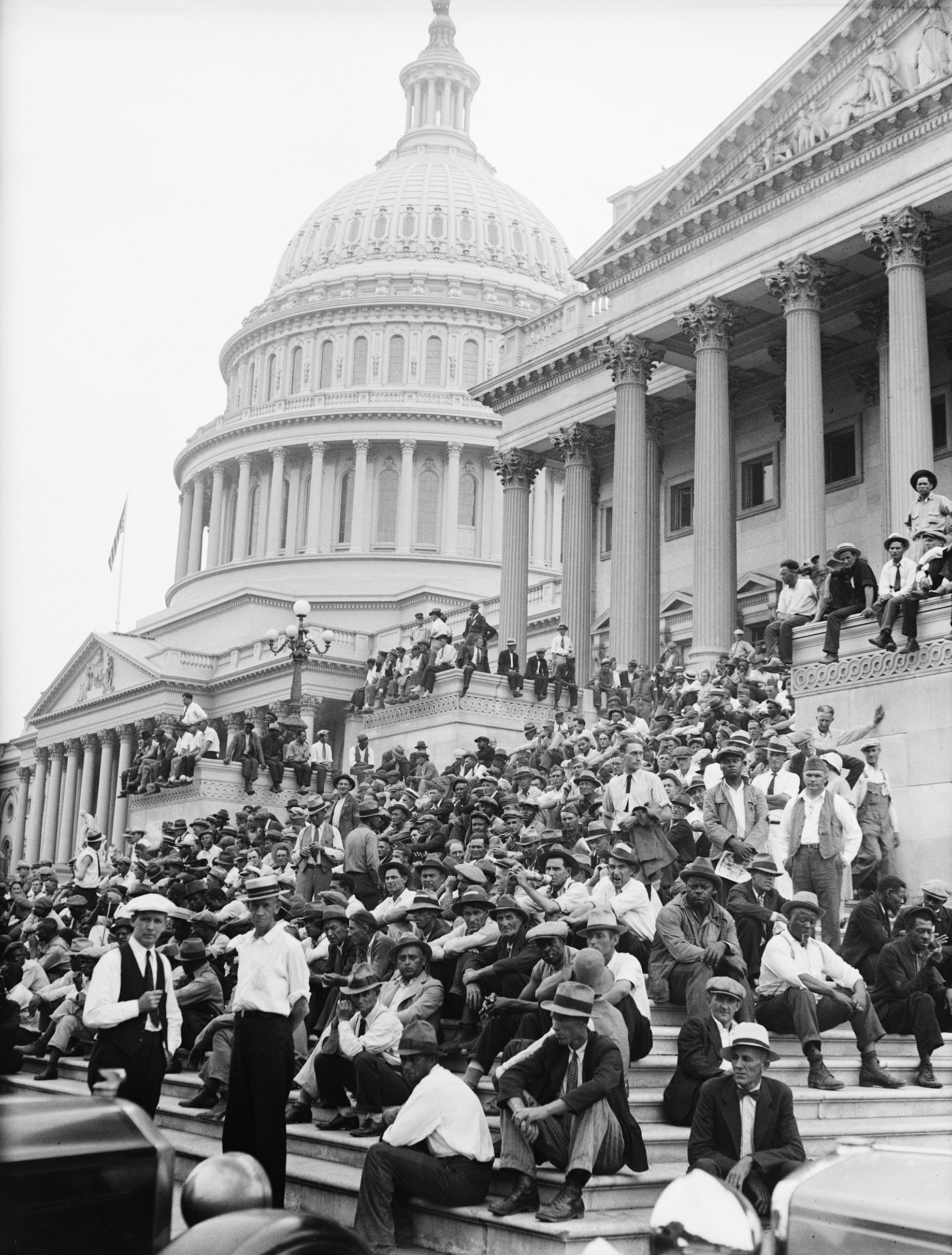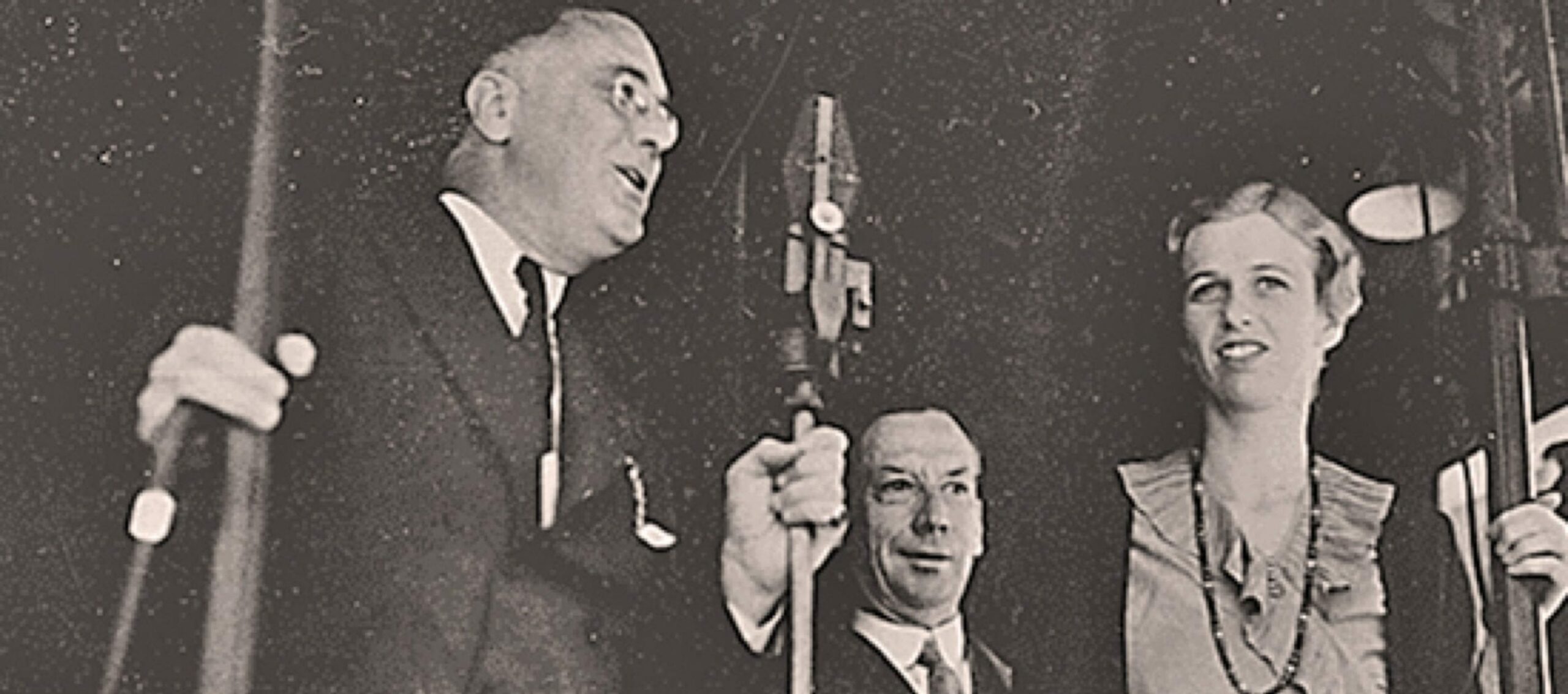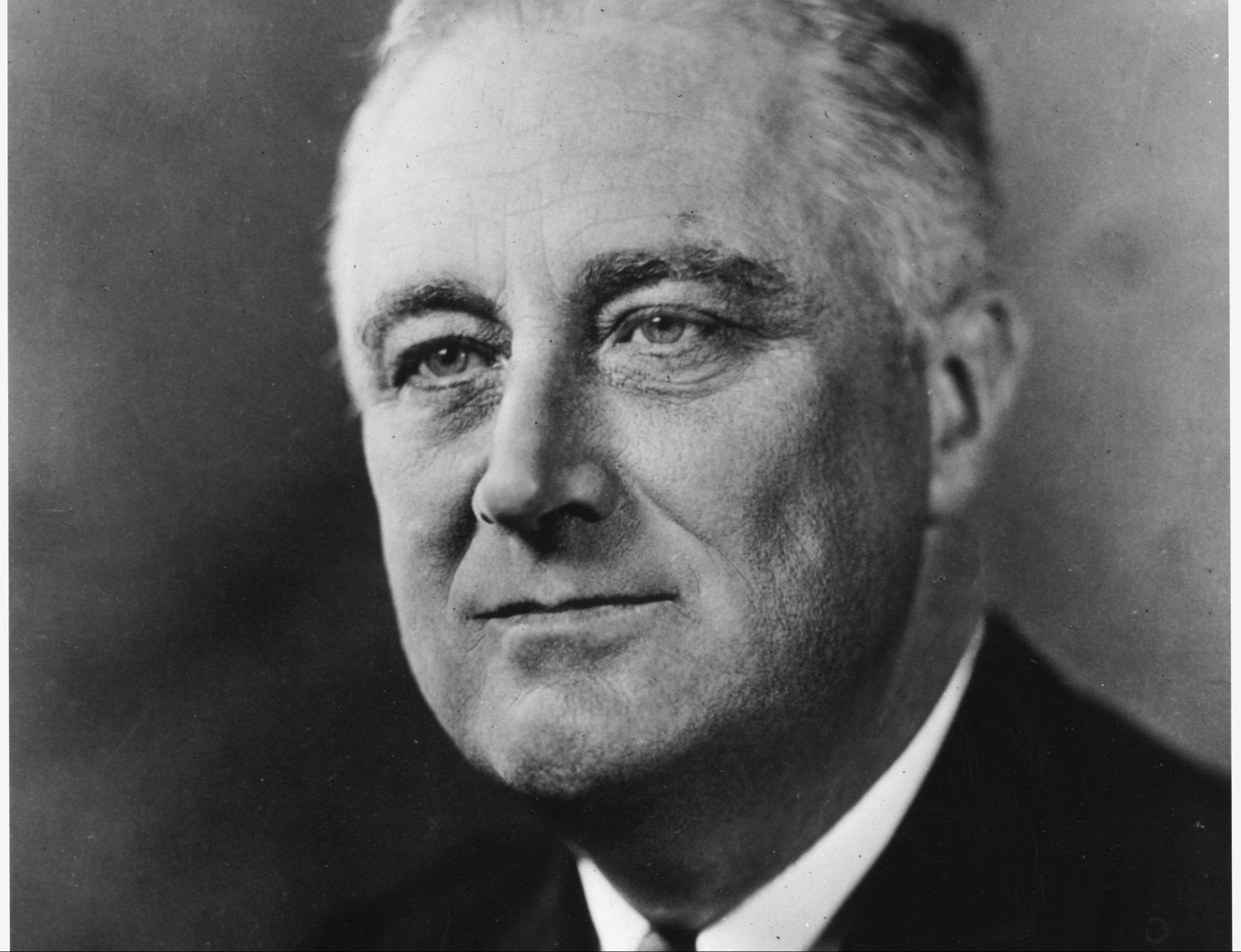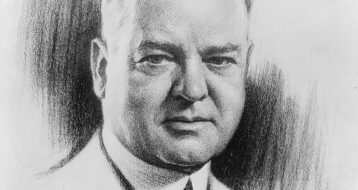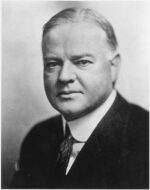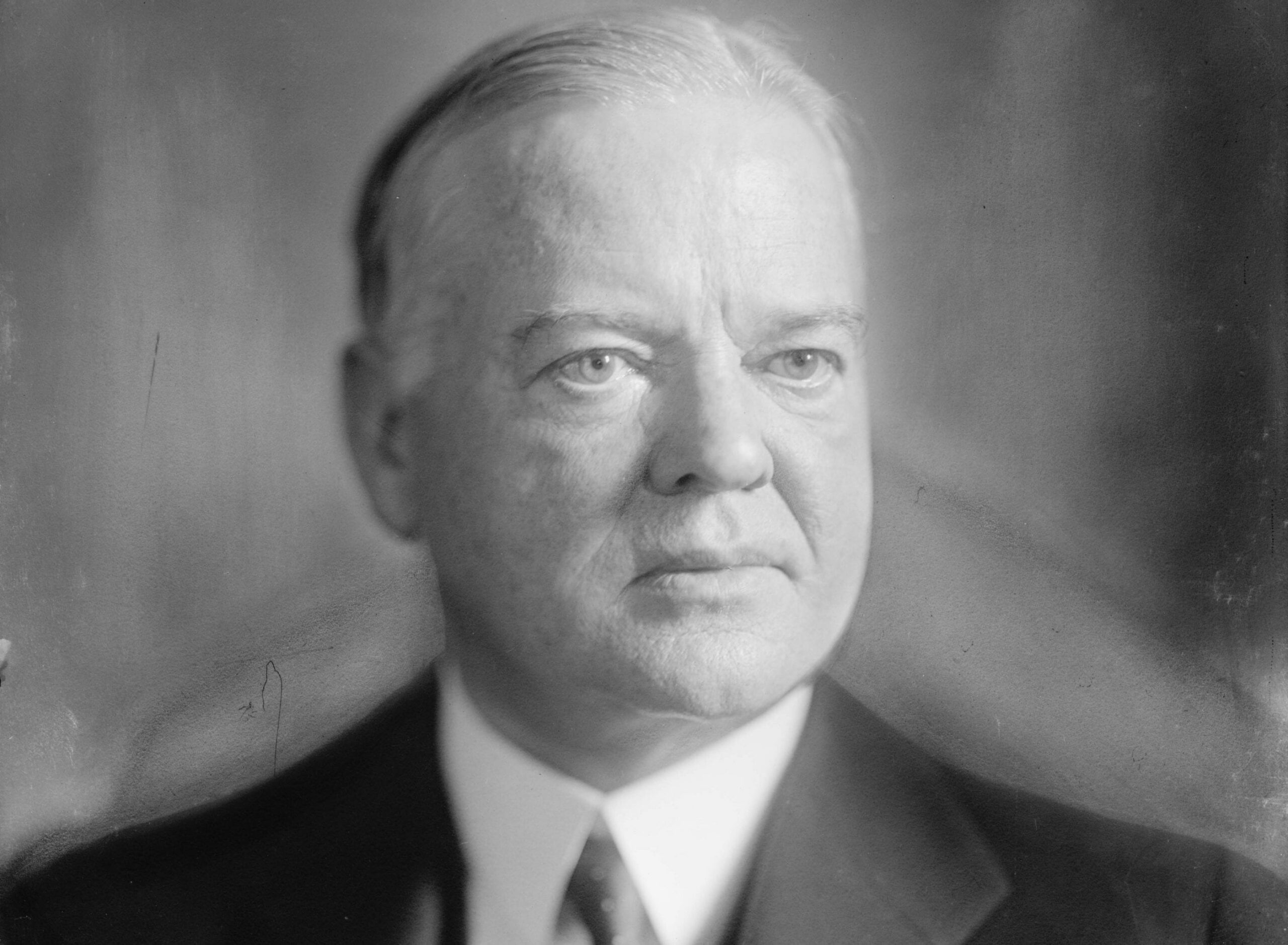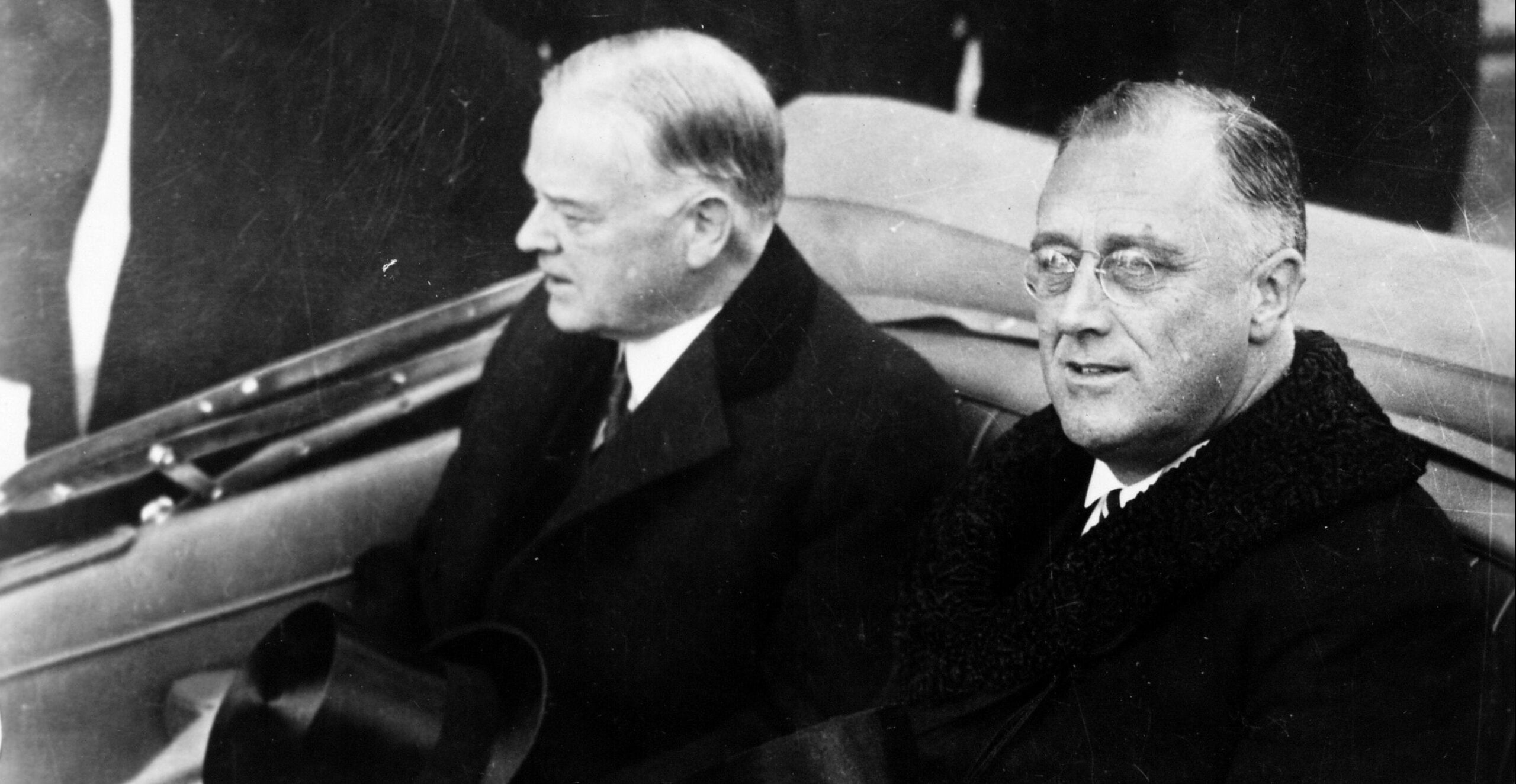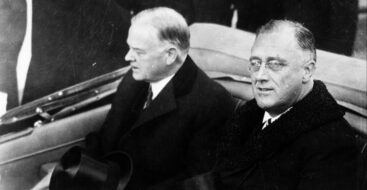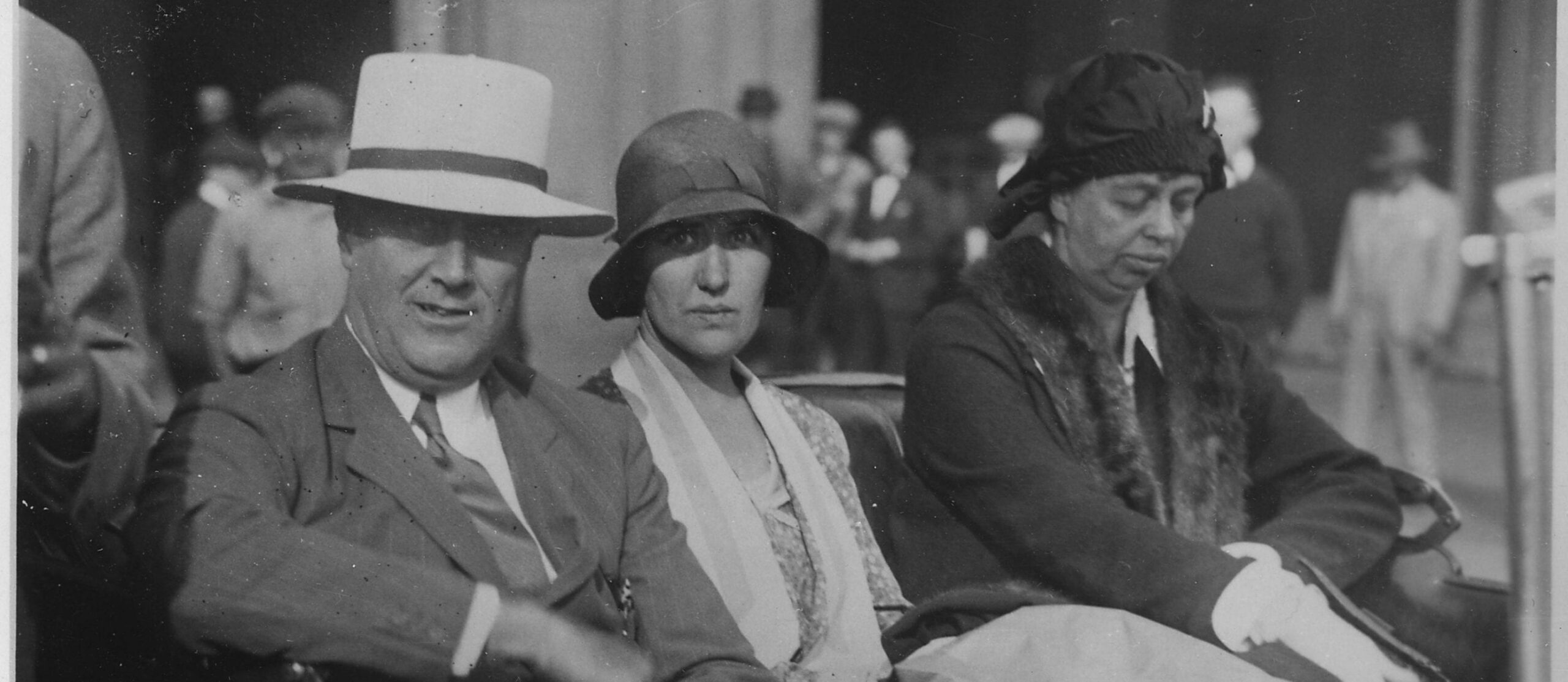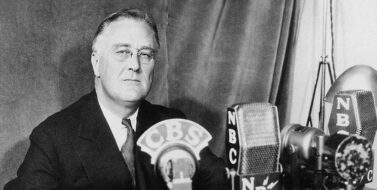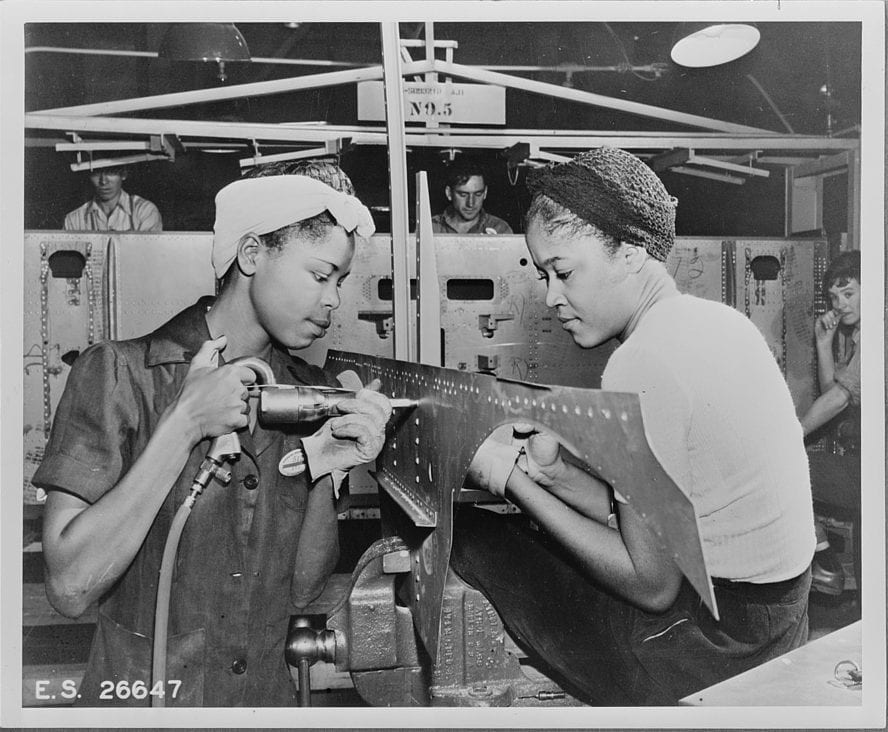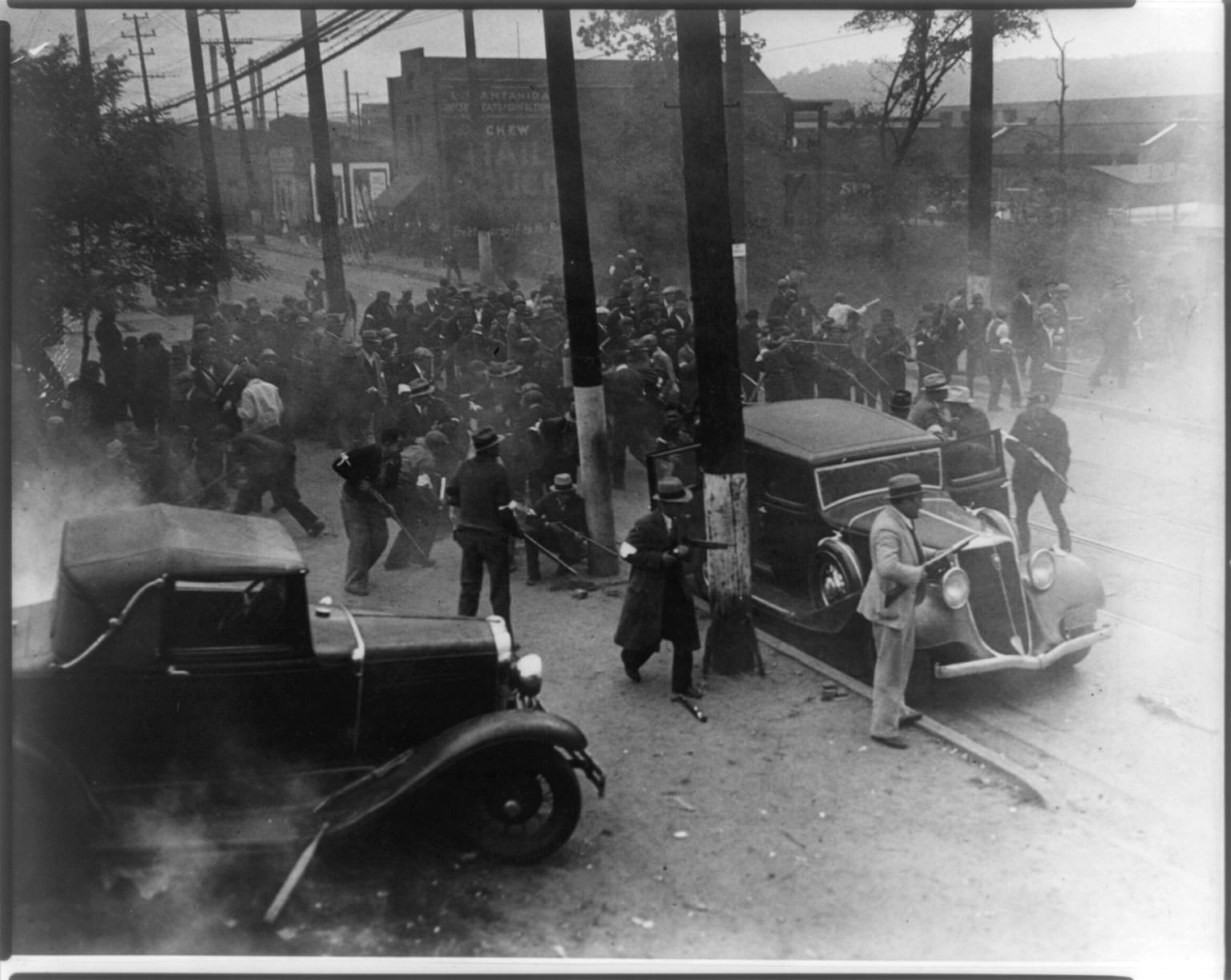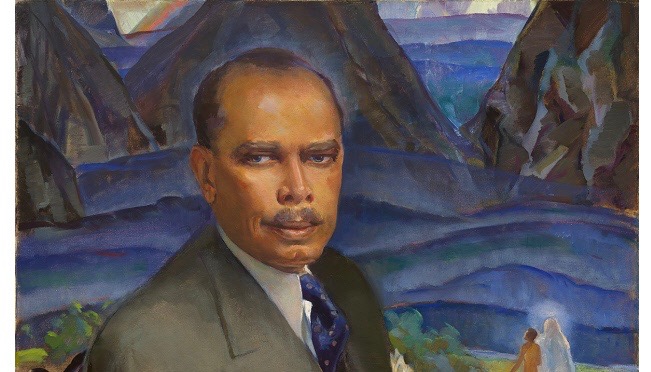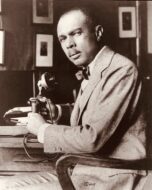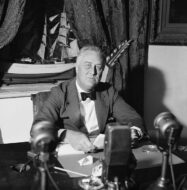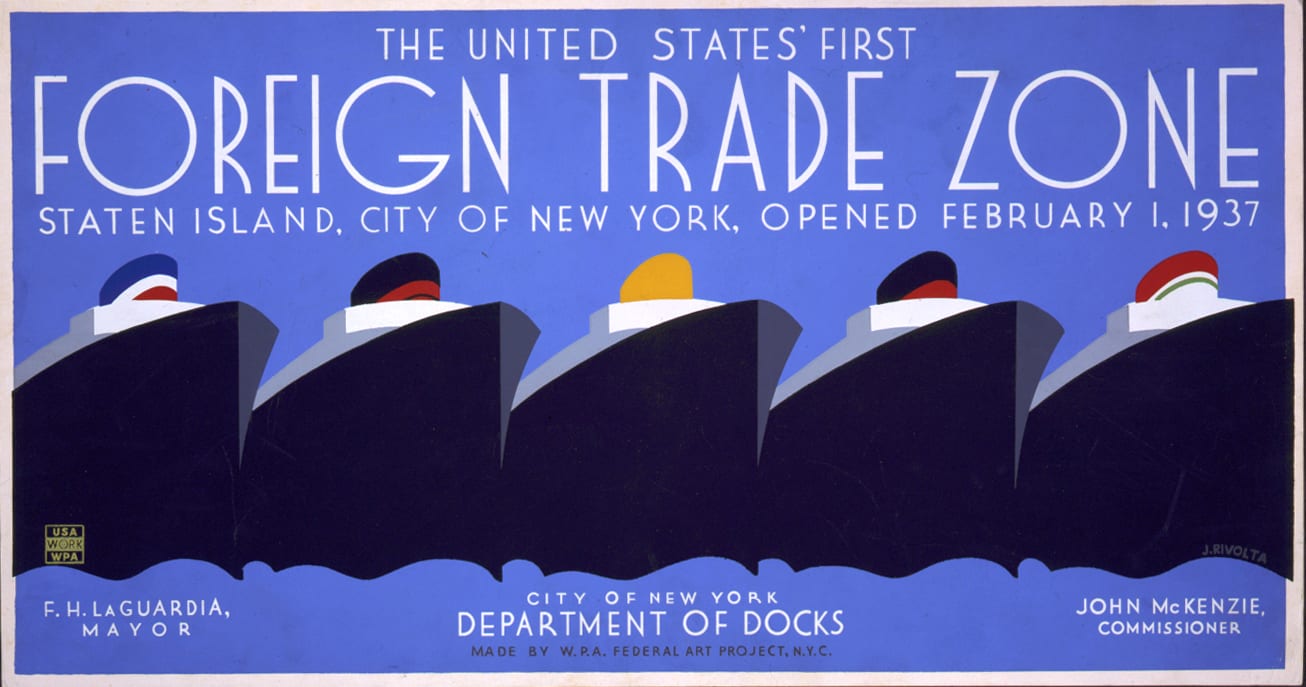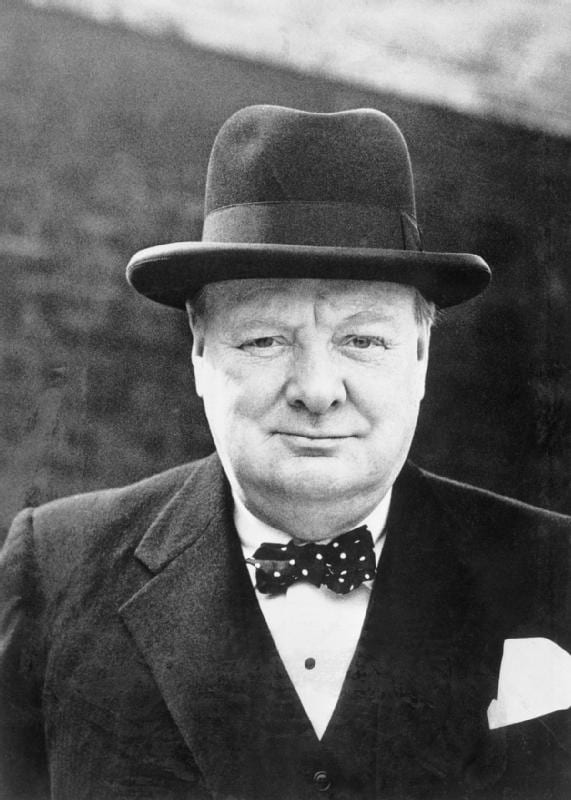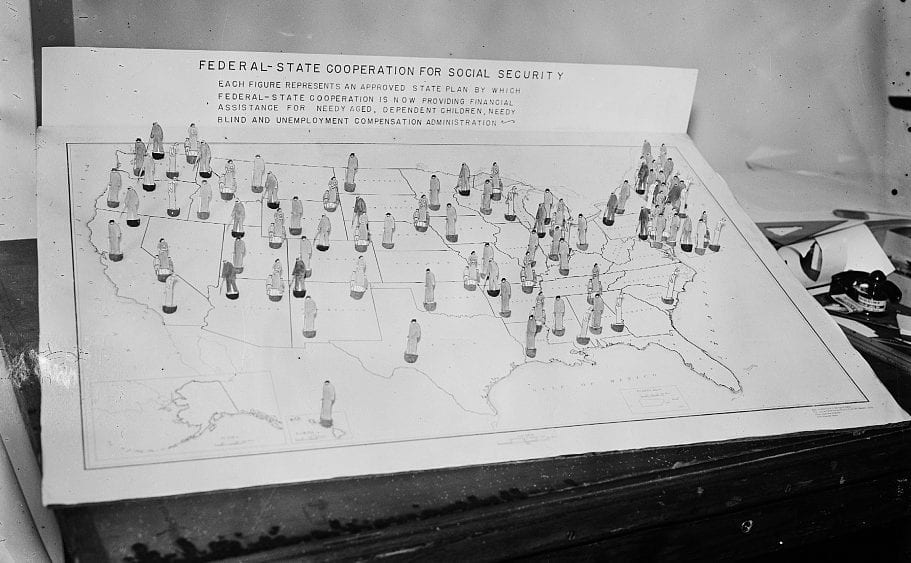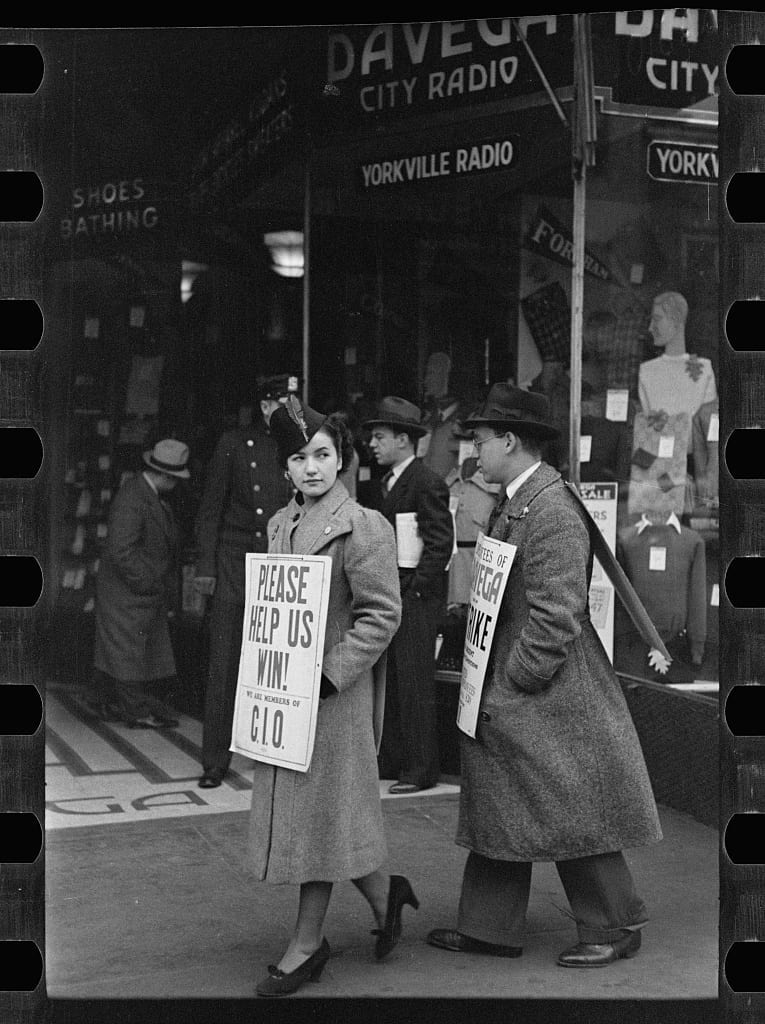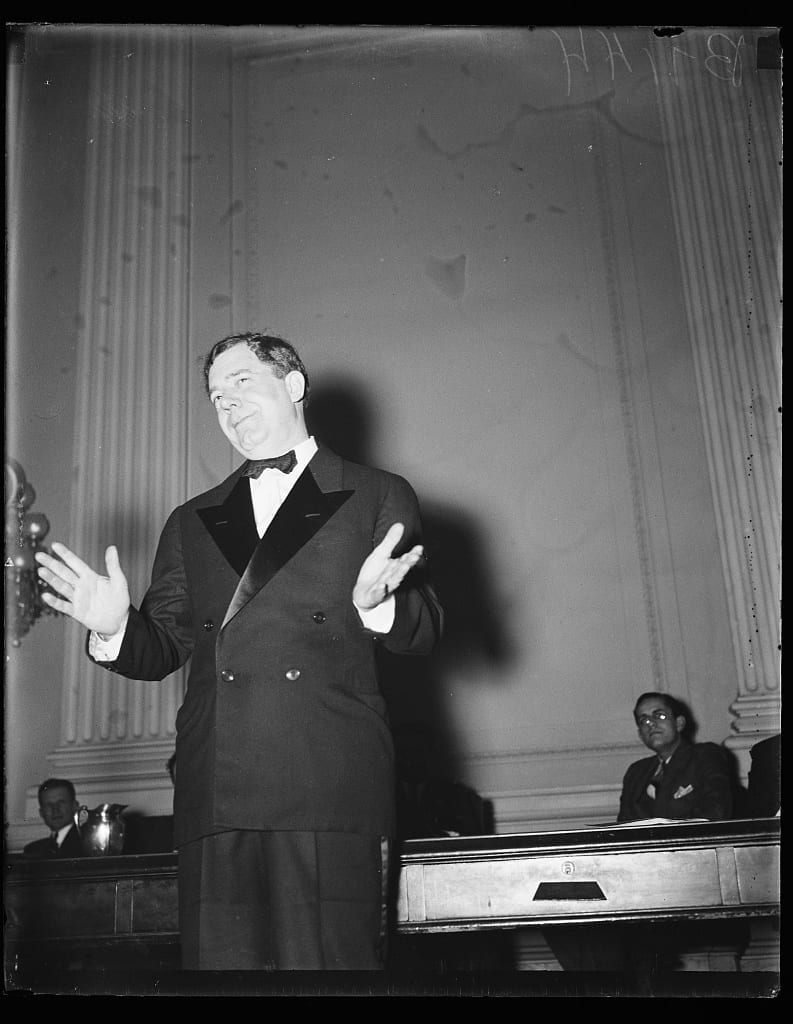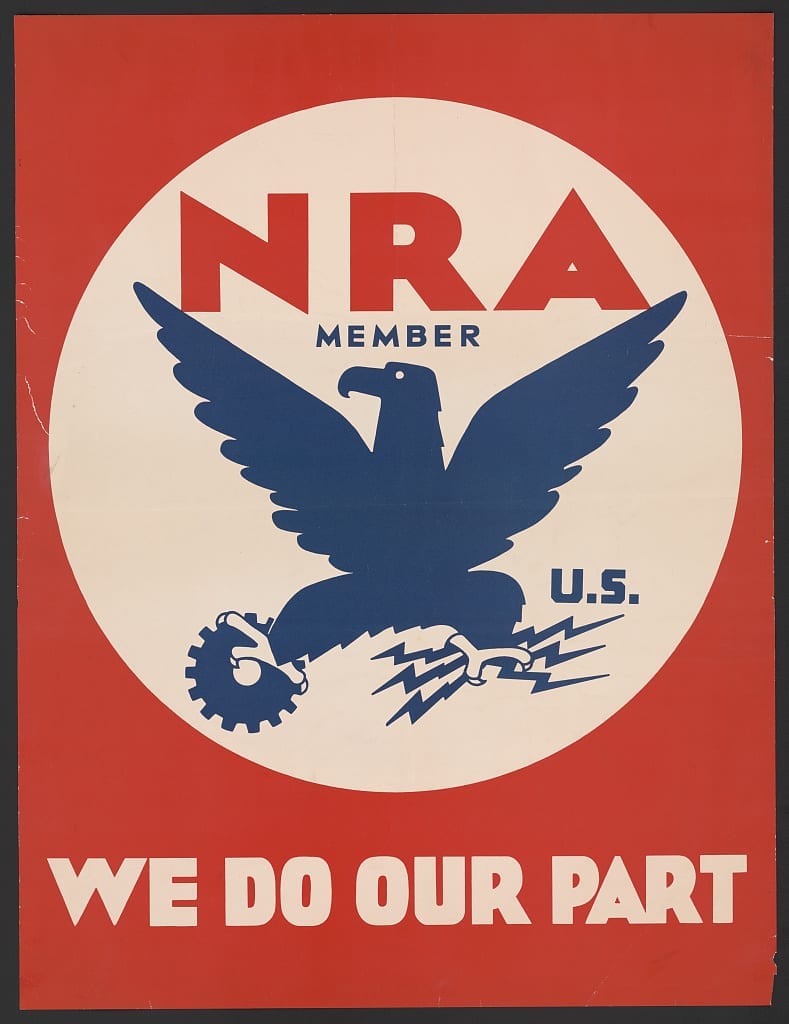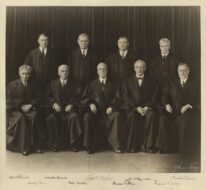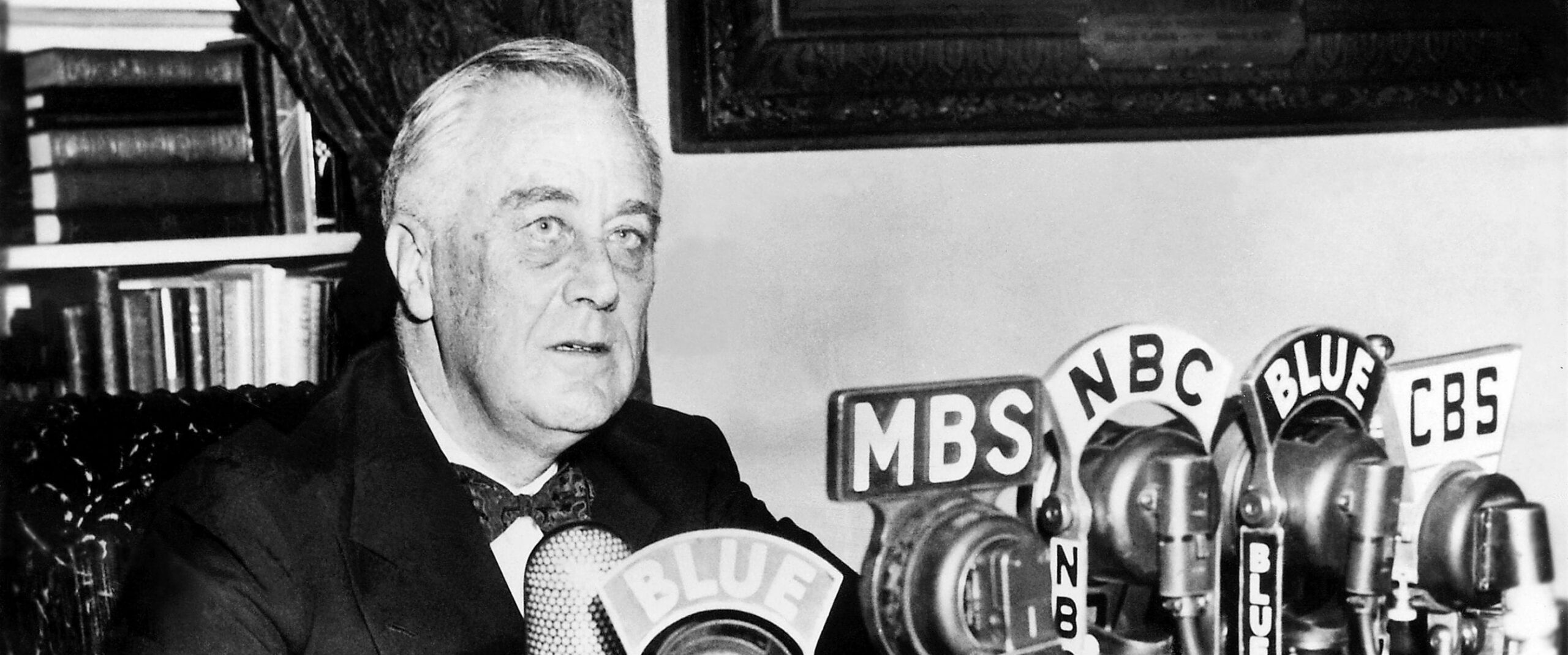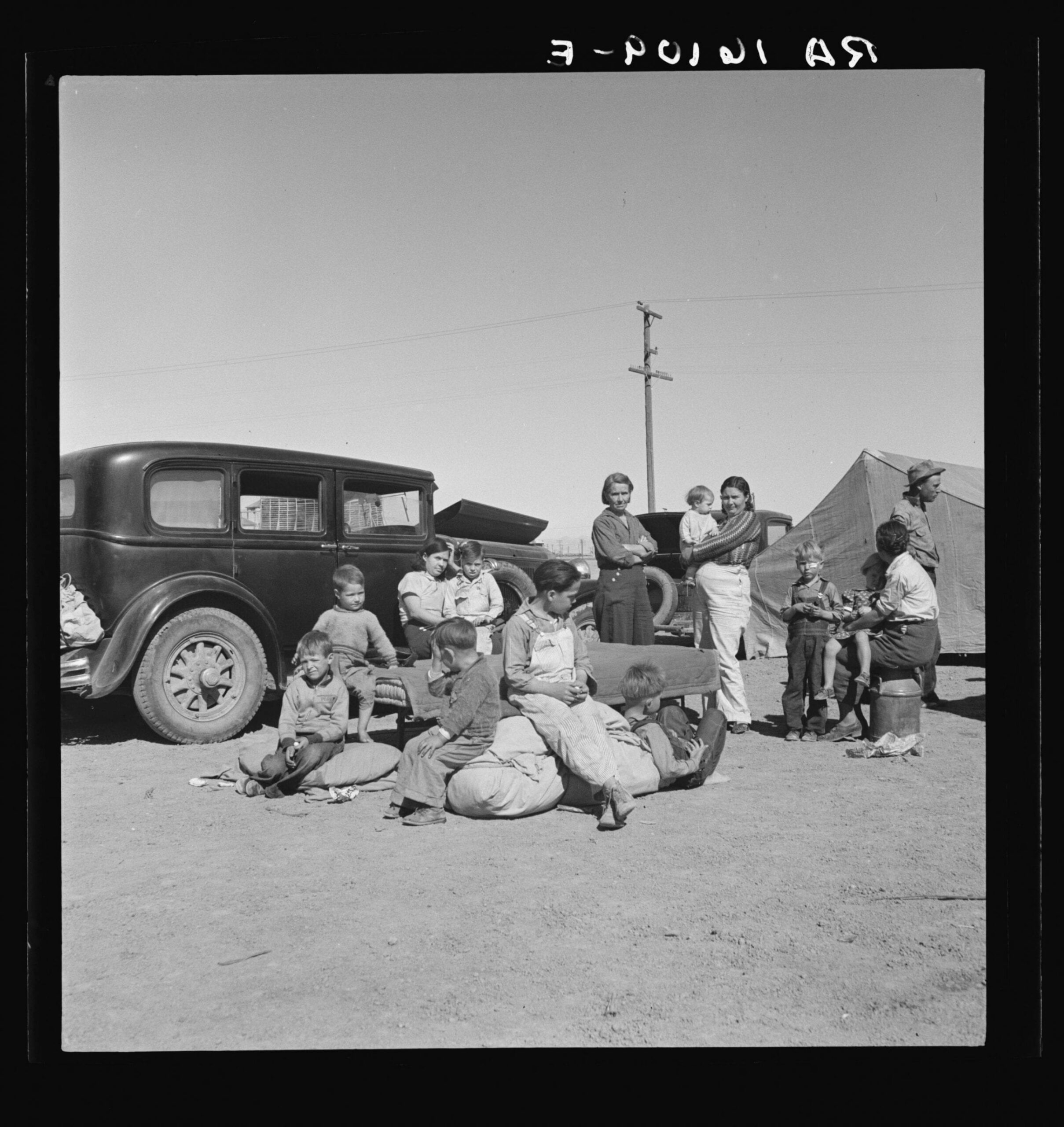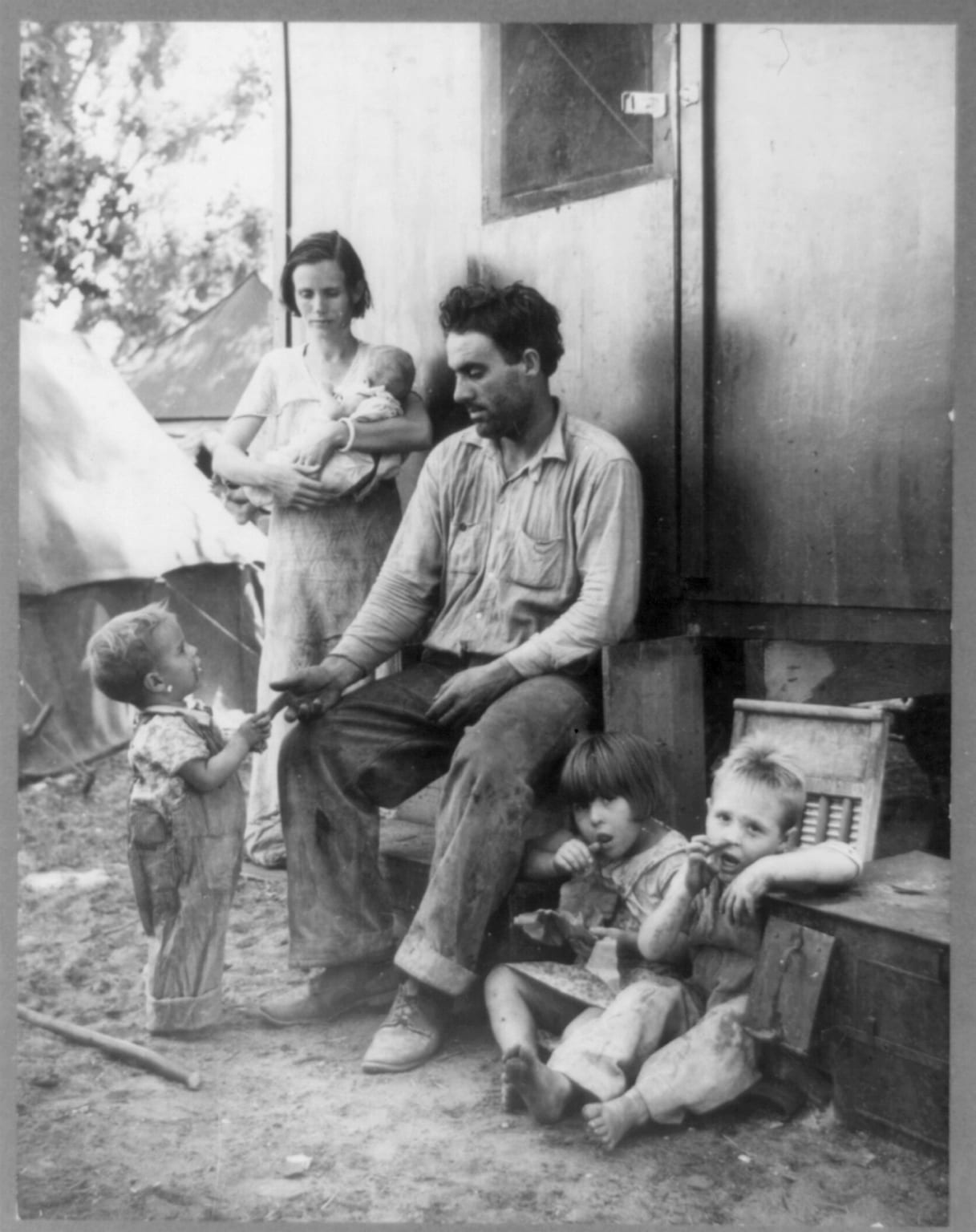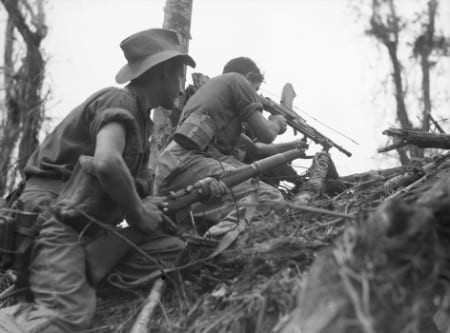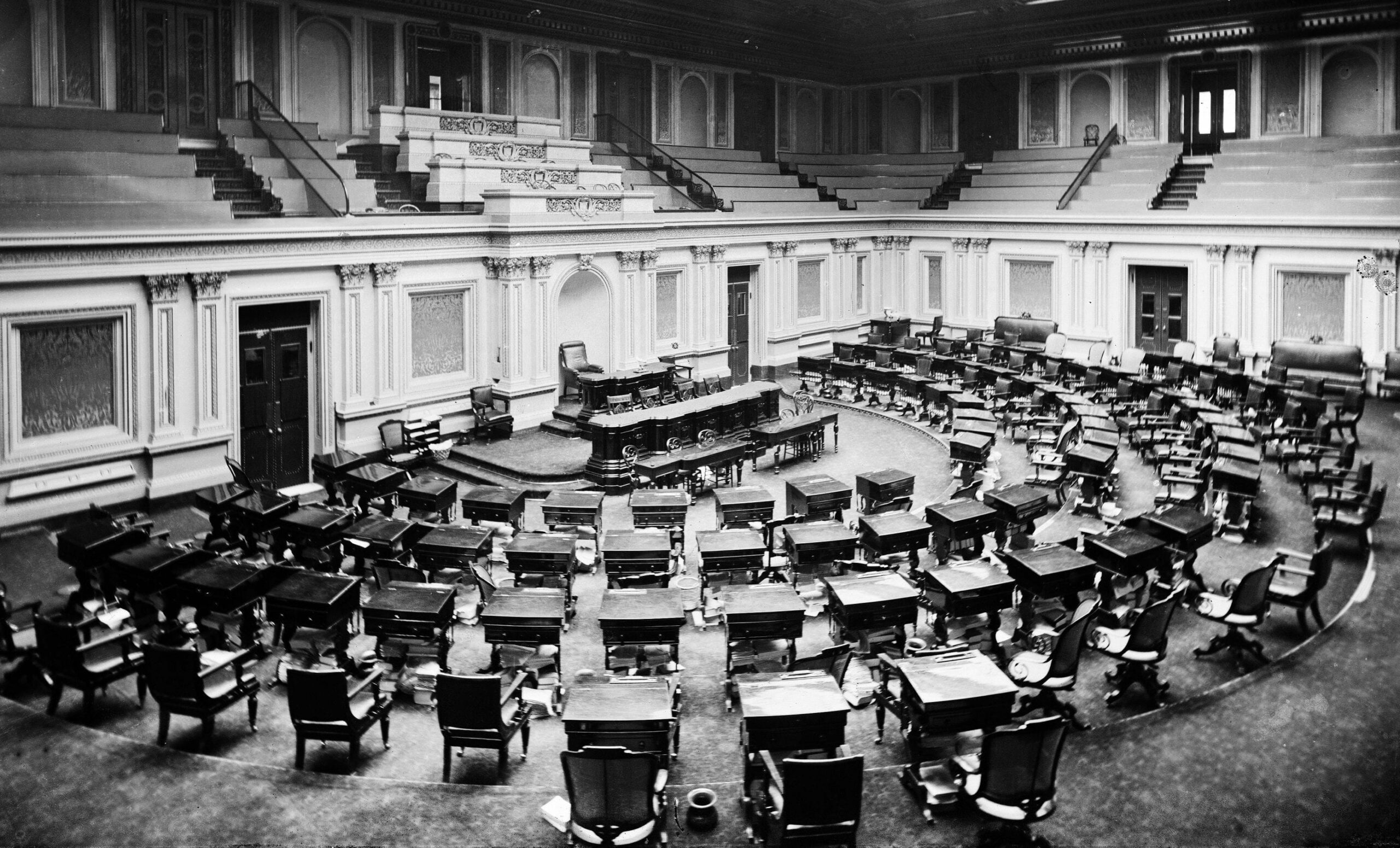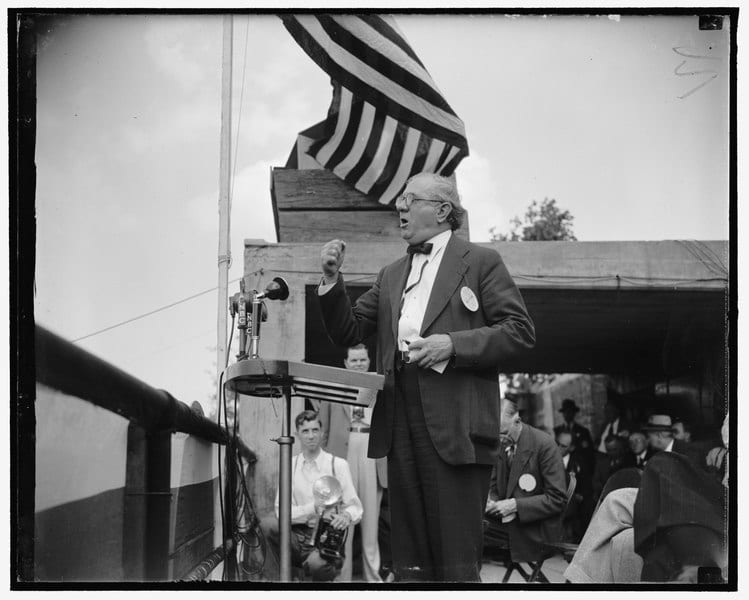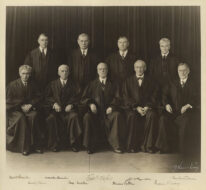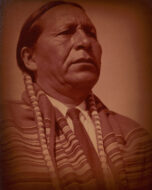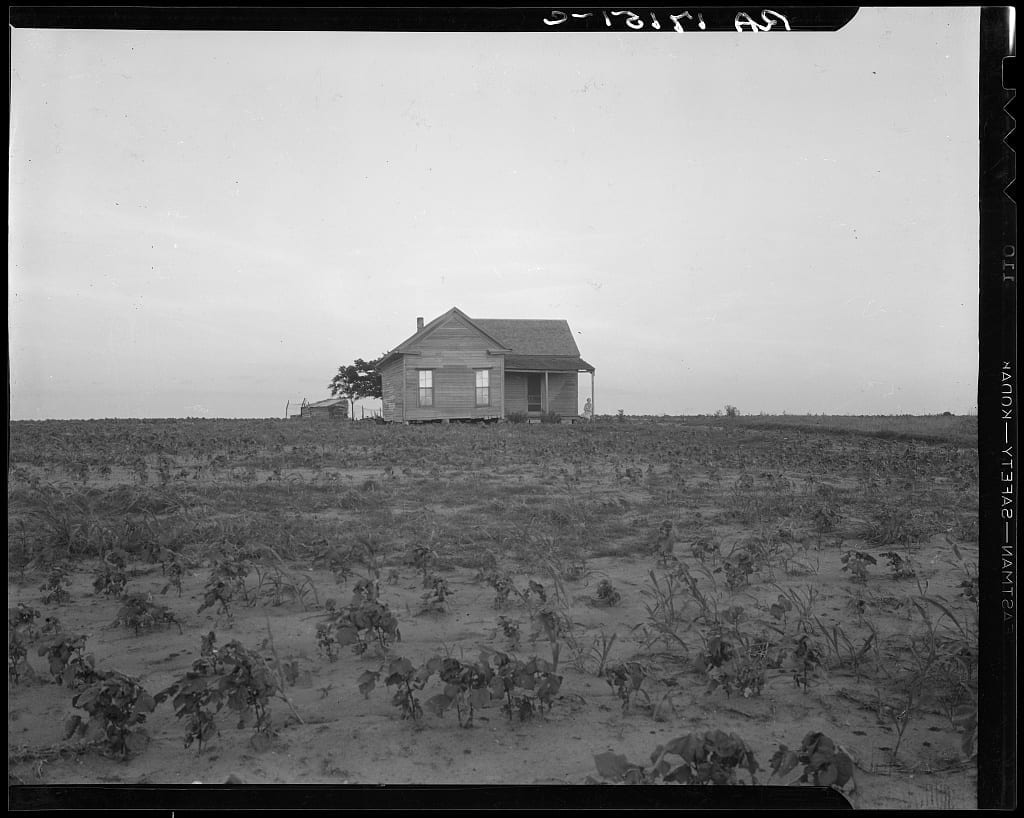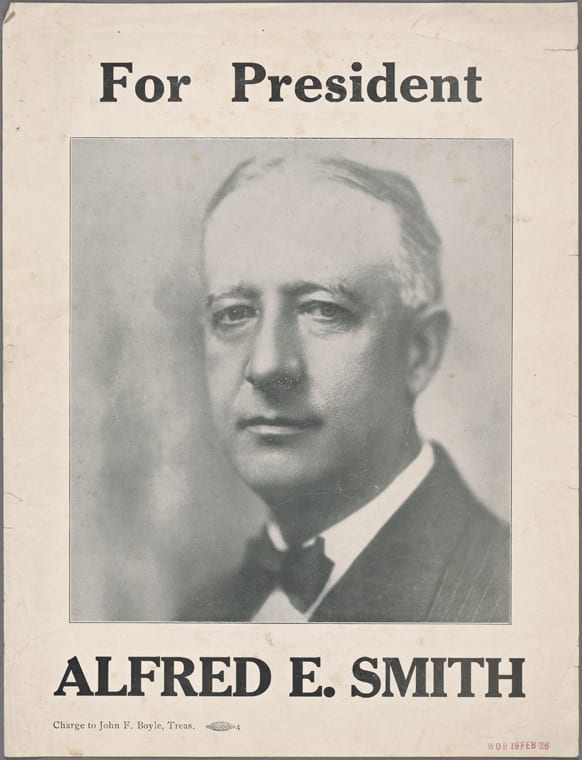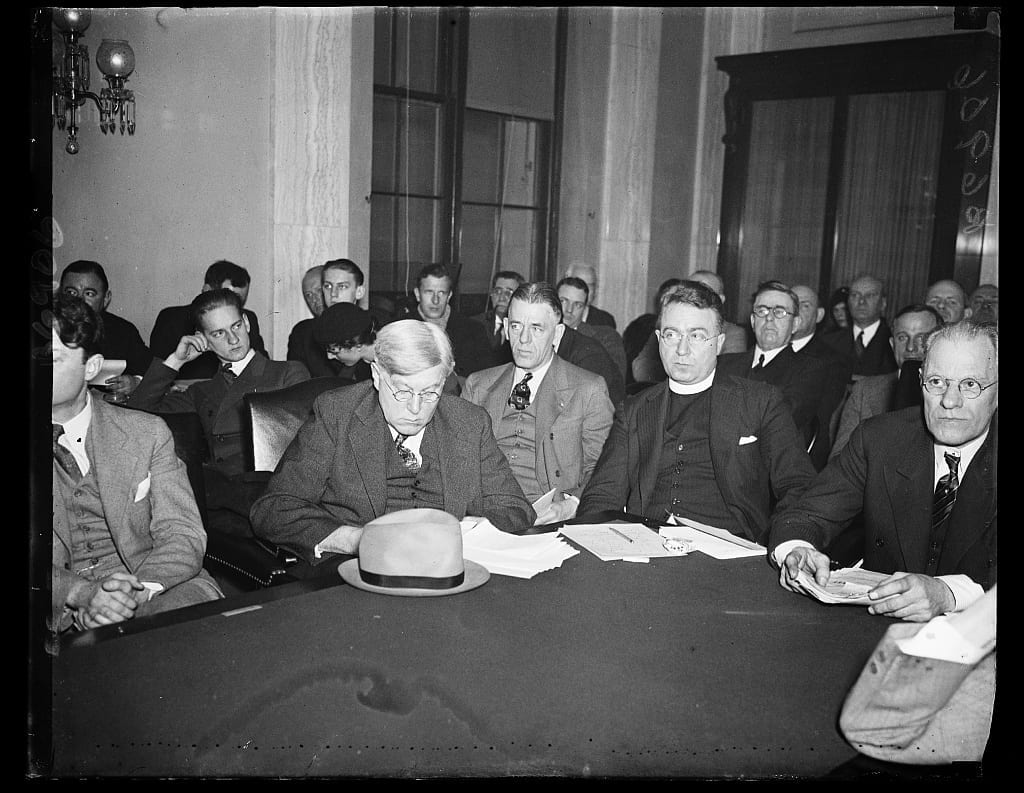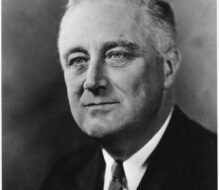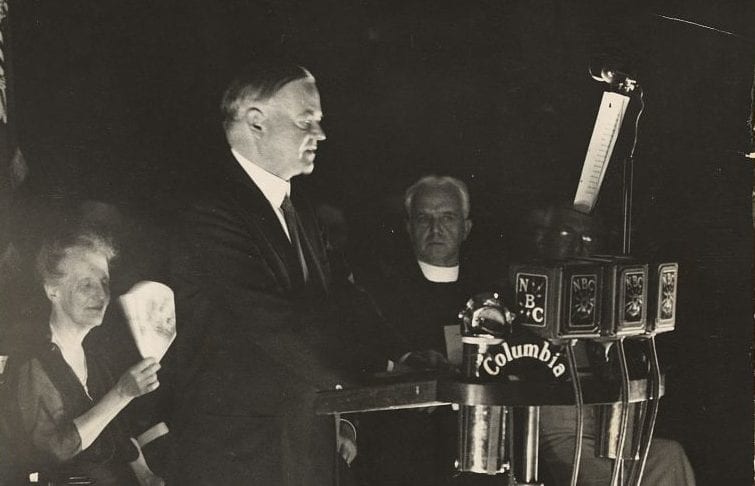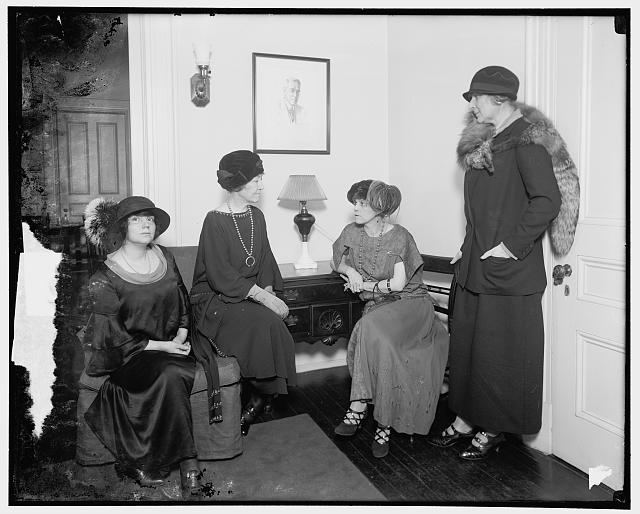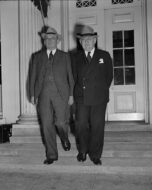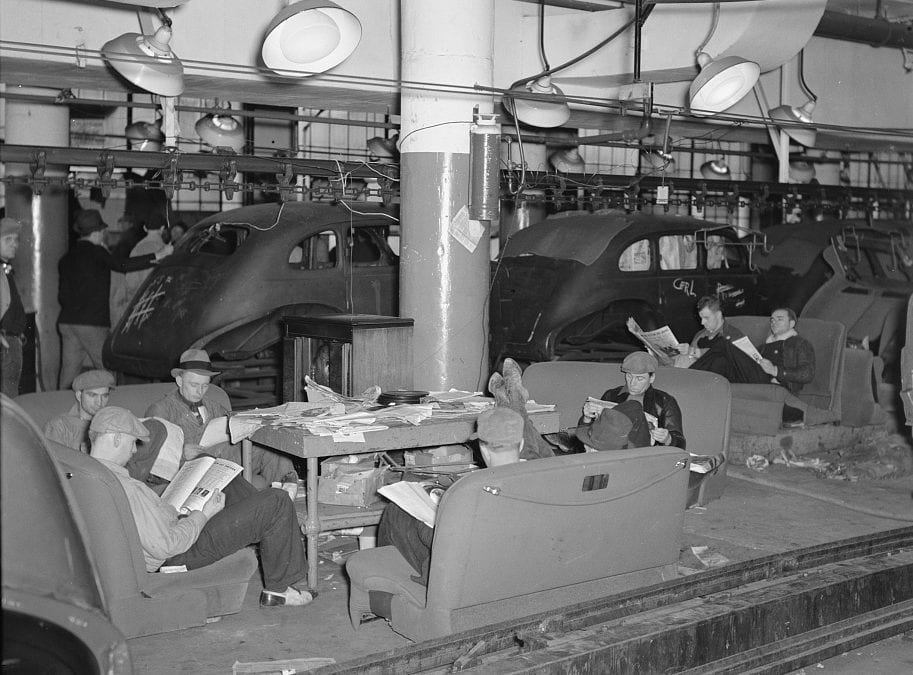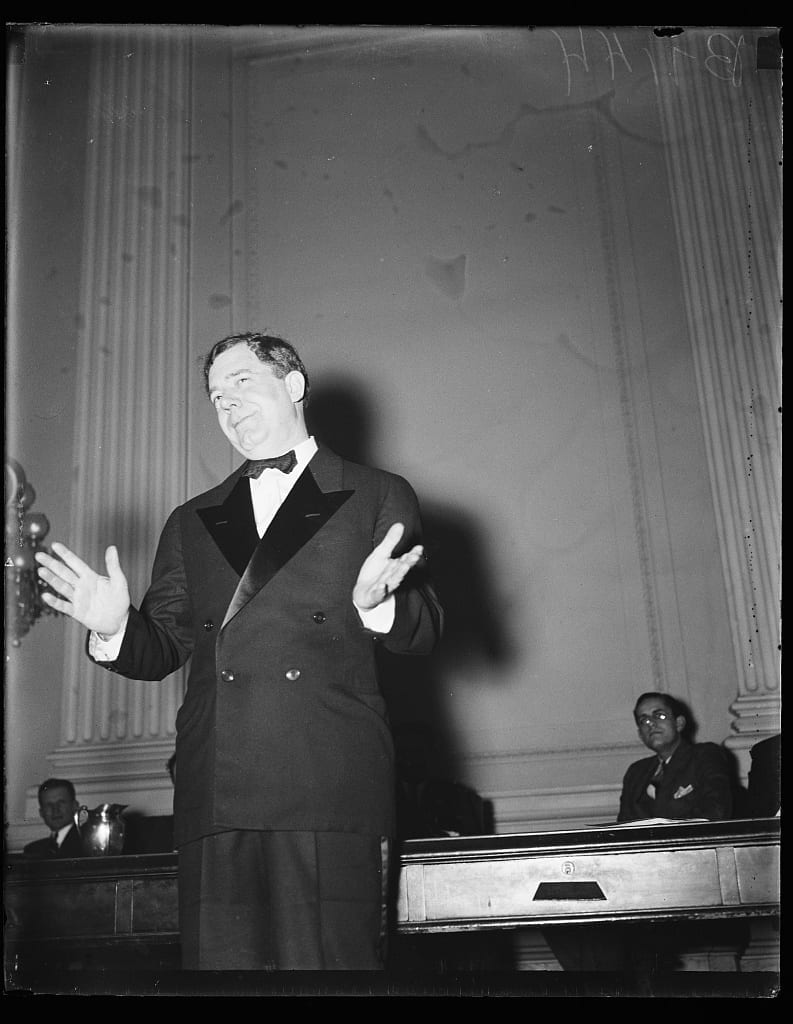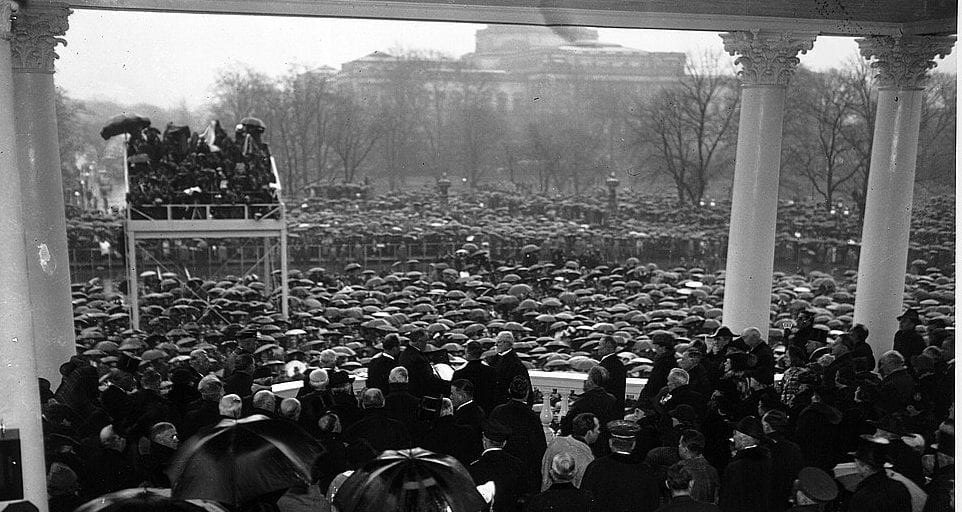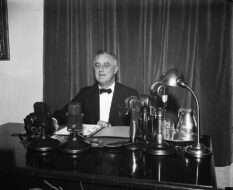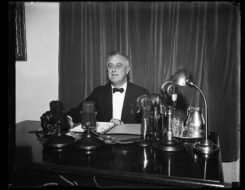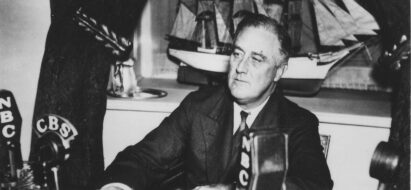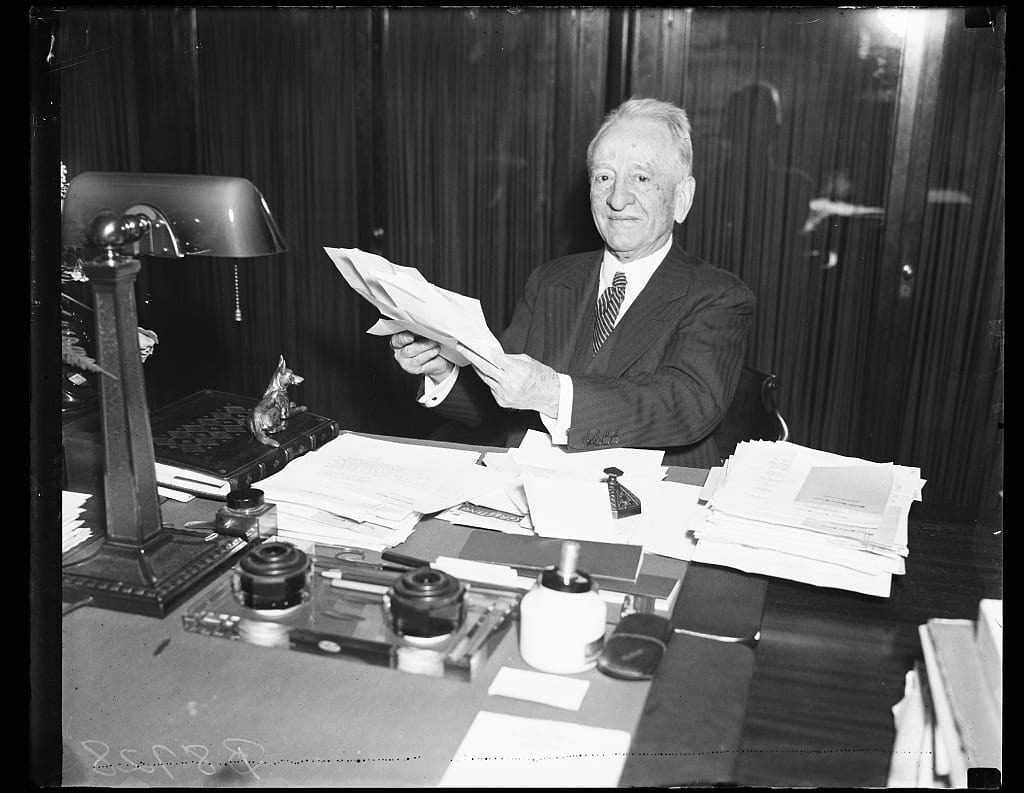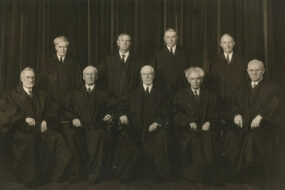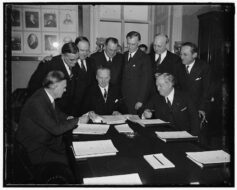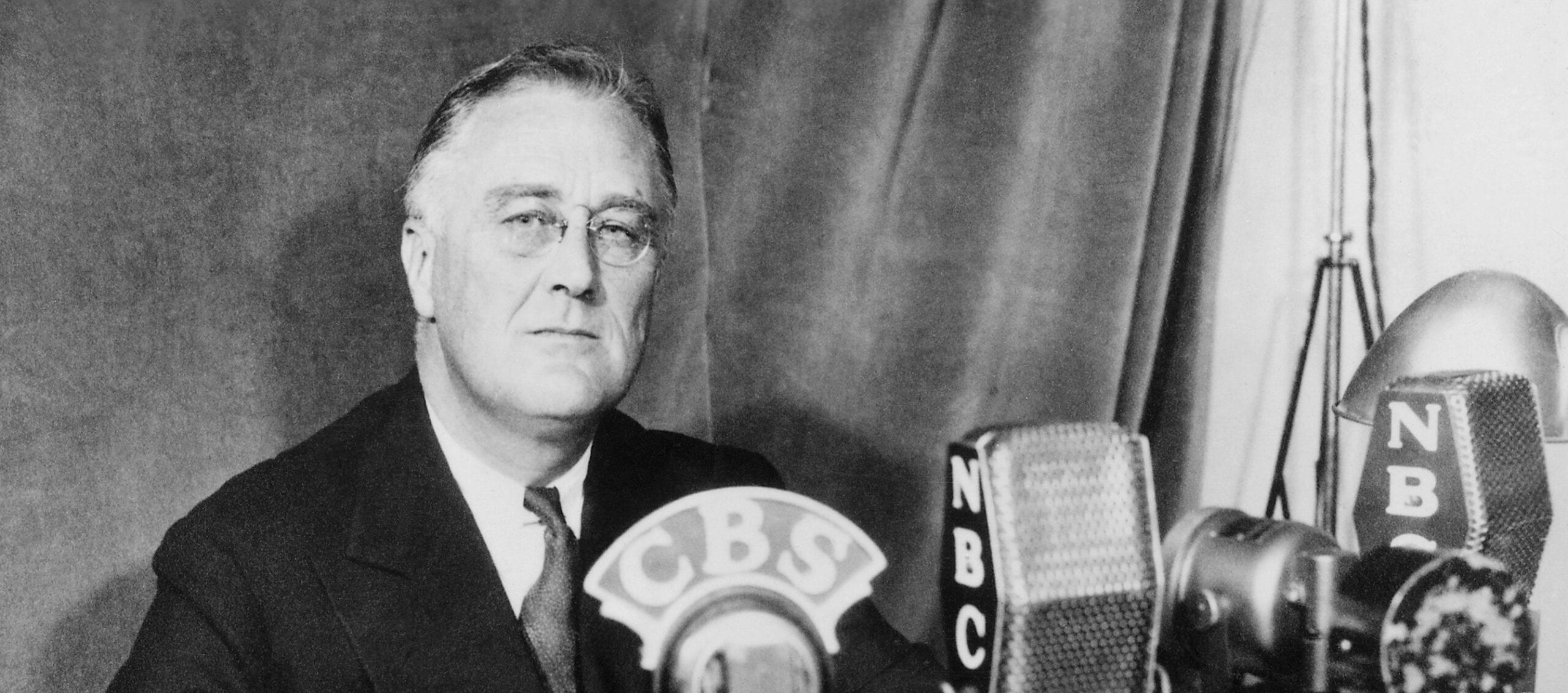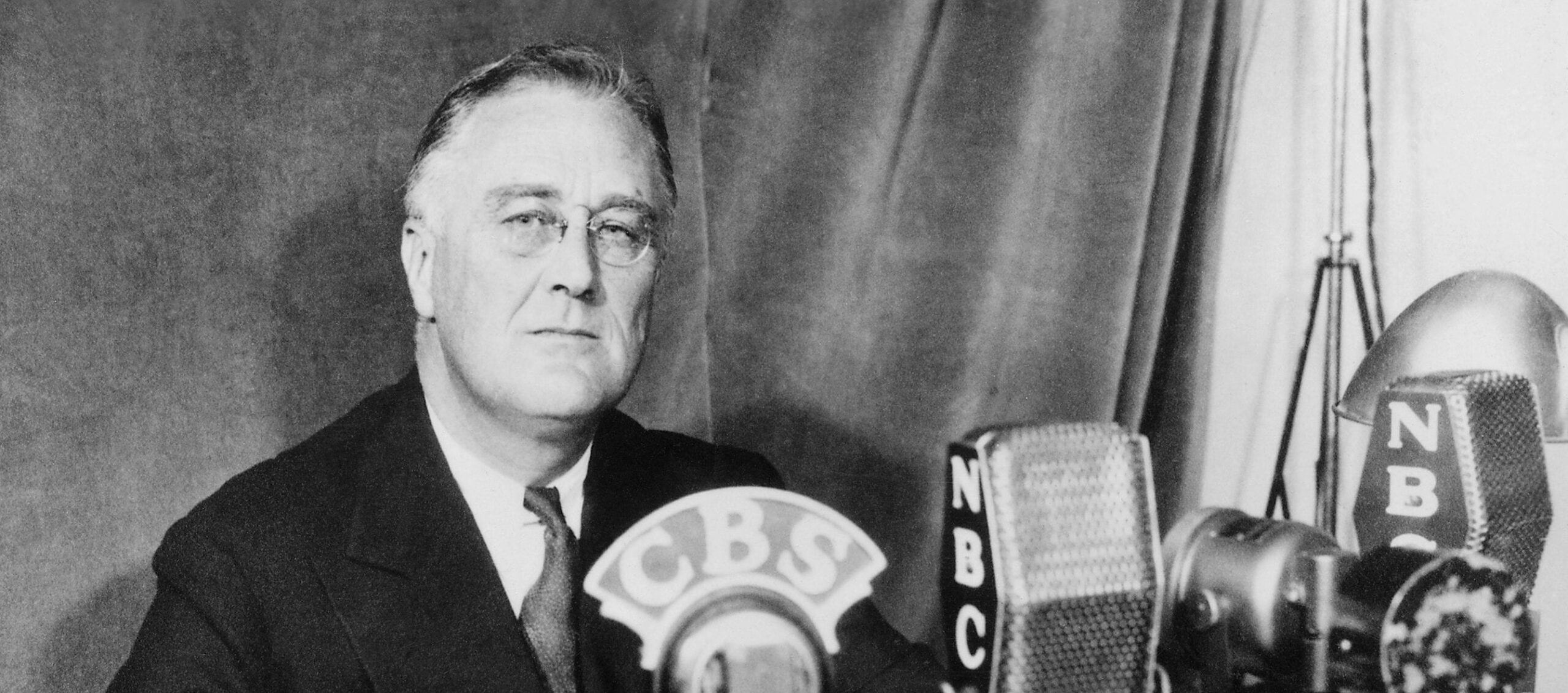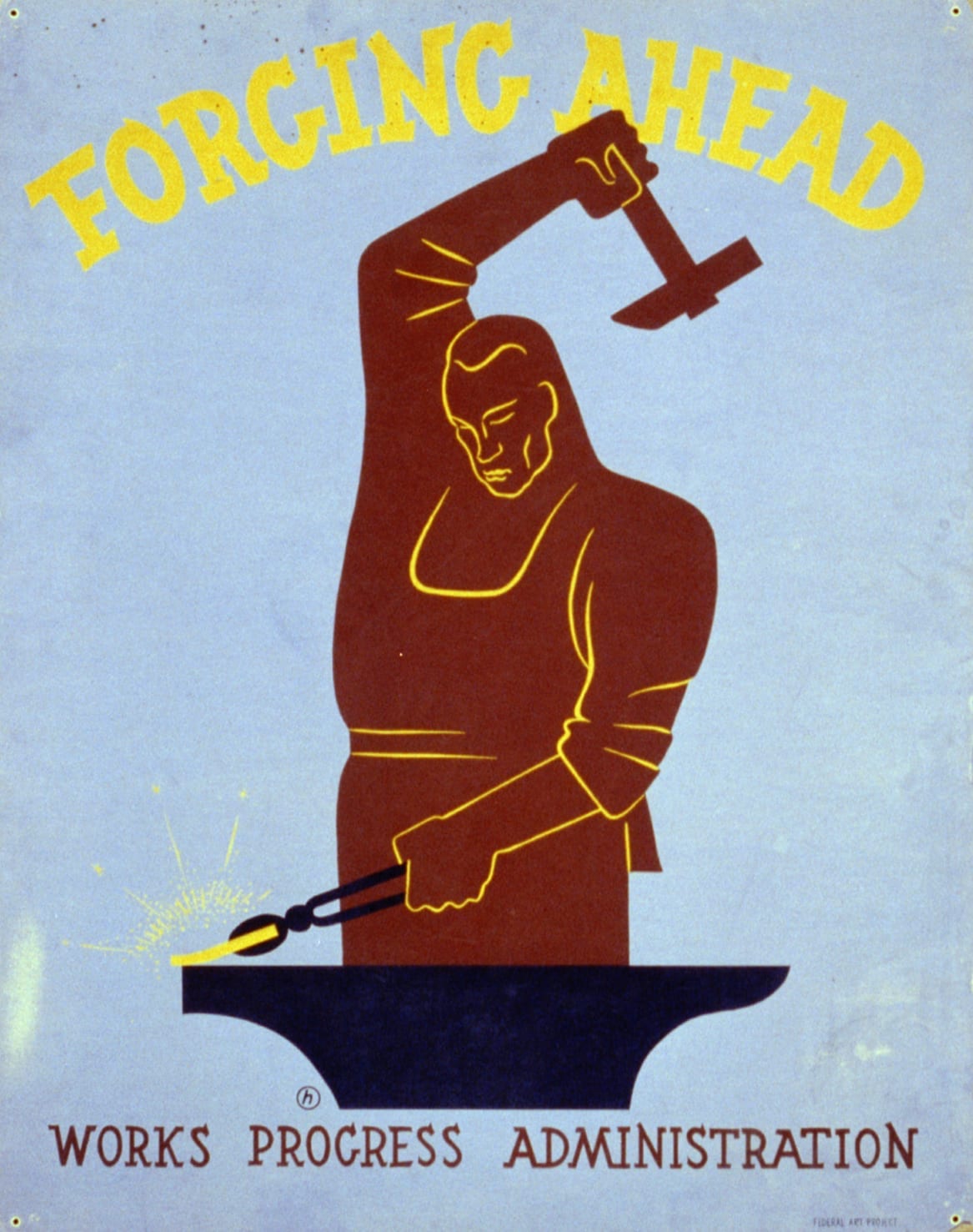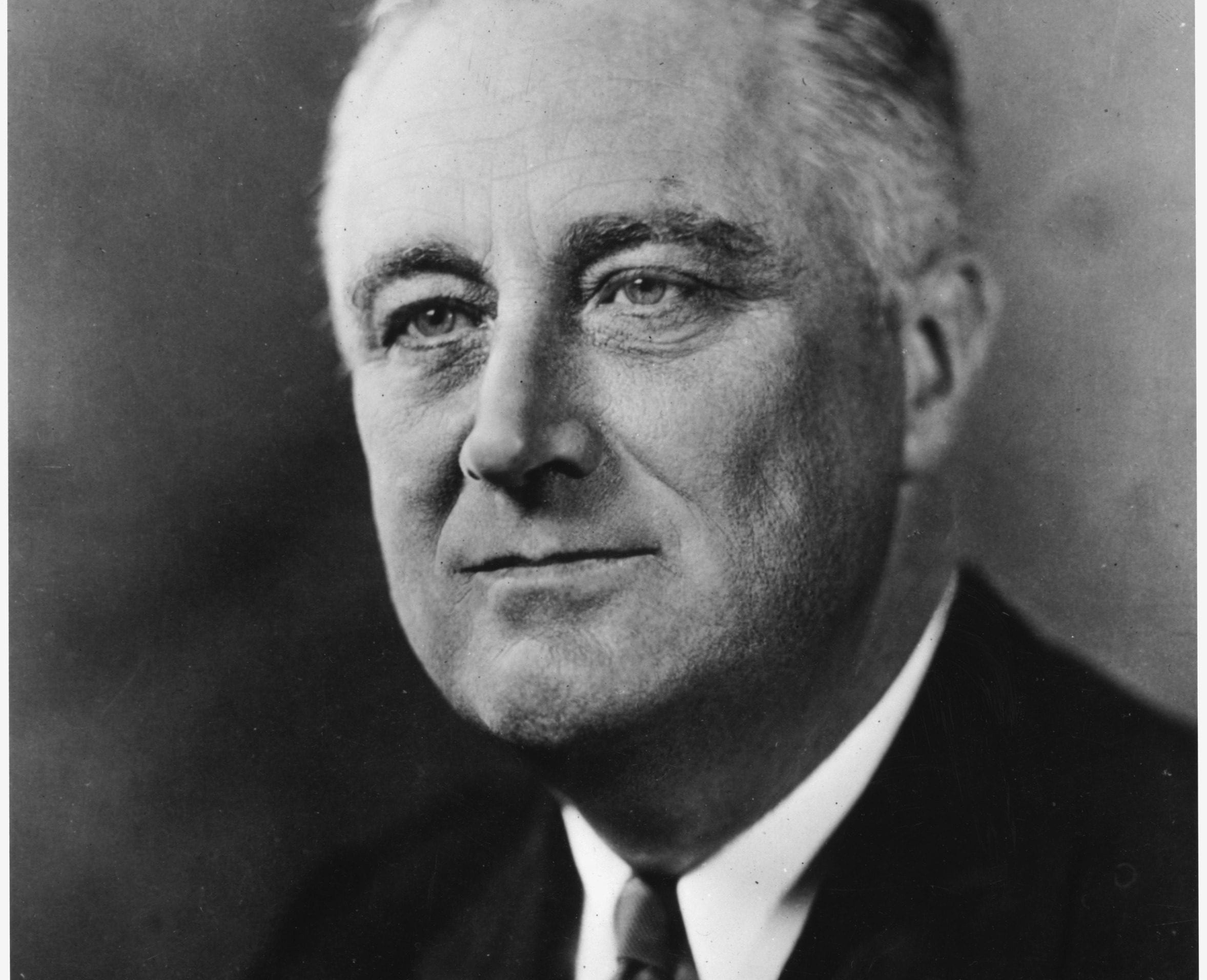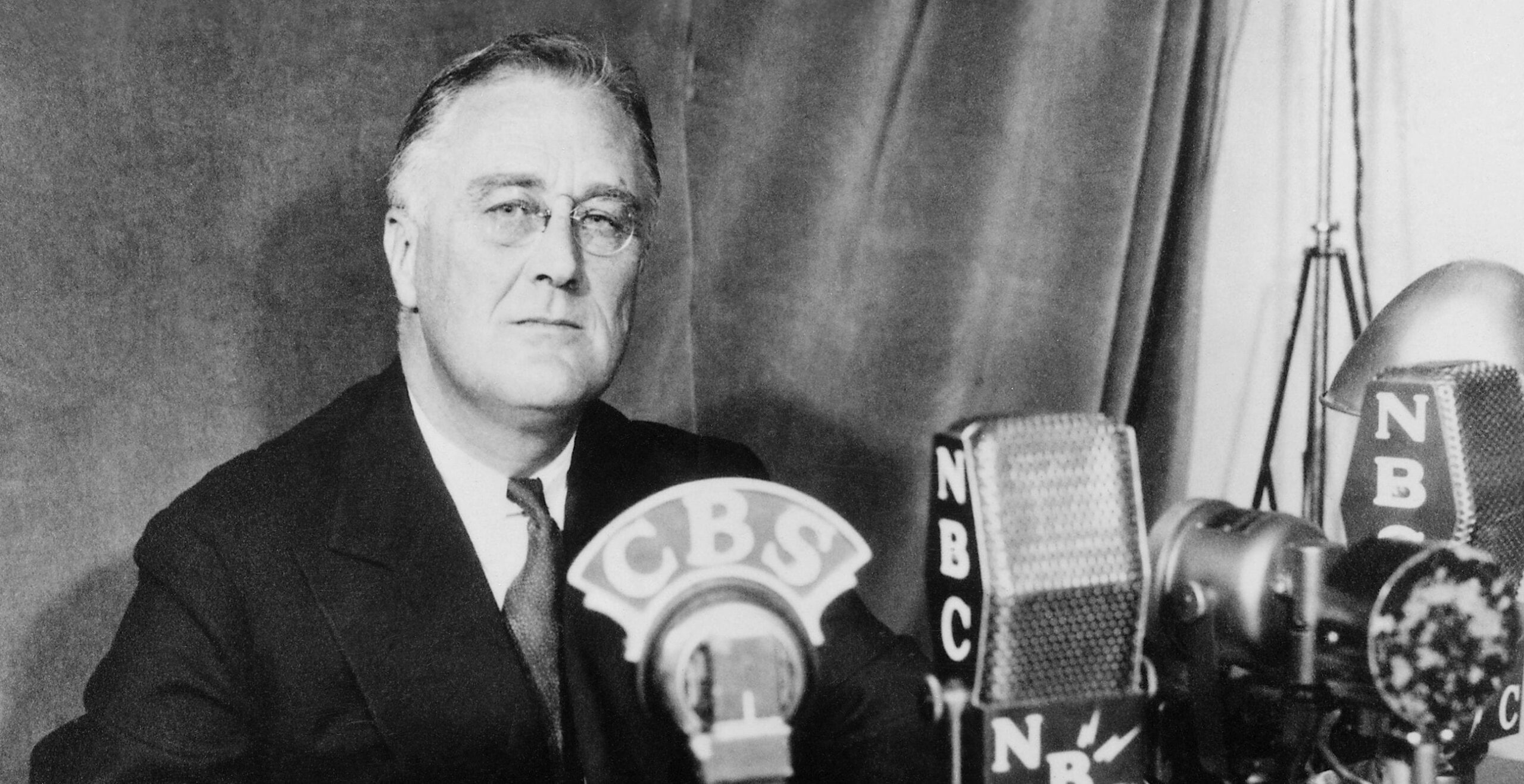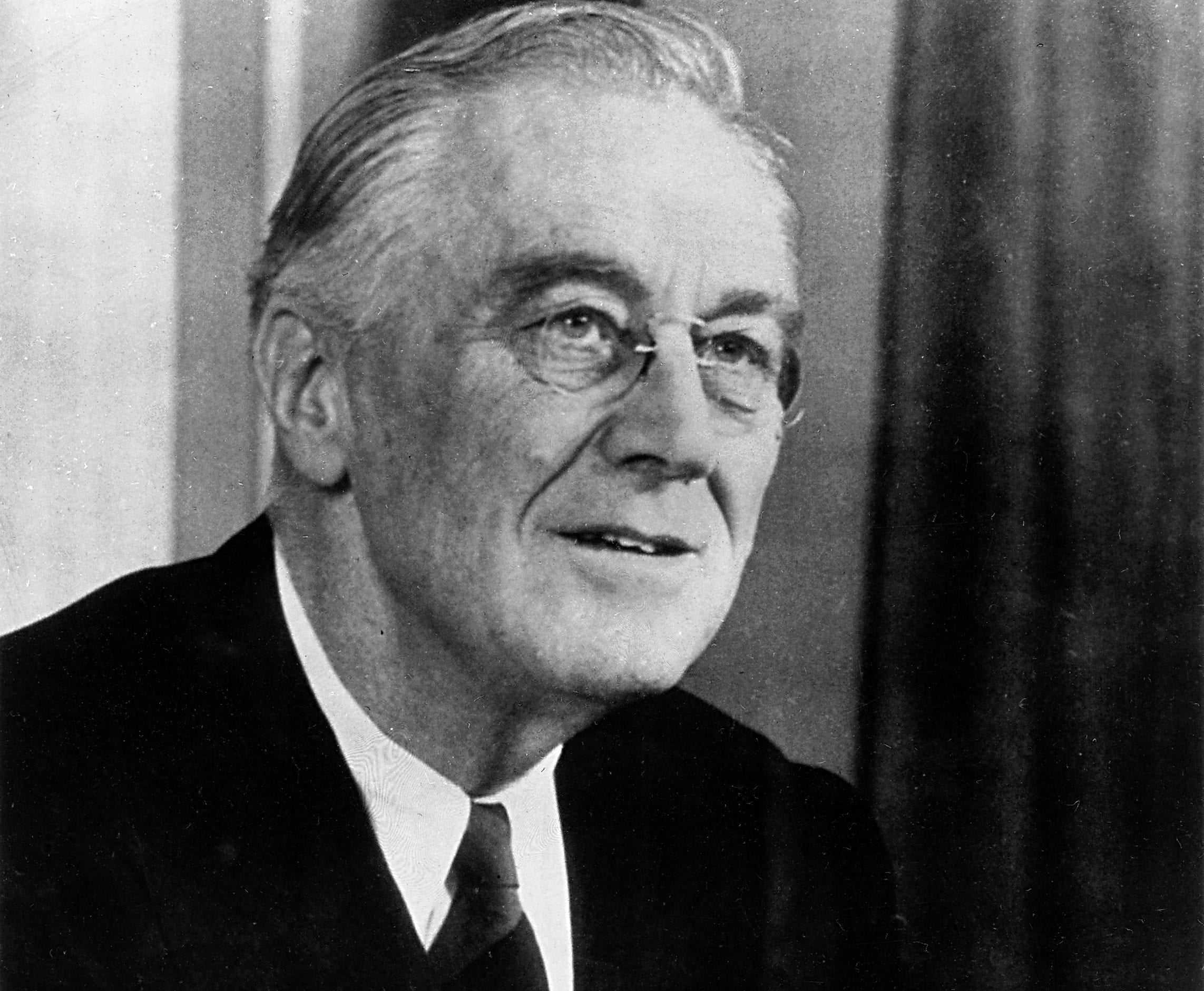

Introduction
President Roosevelt won renomination easily at the Democratic convention in Philadelphia. So strong politically was Roosevelt that he was able to get the convention to overturn the rule requiring a candidate to get two-thirds of the delegates’ votes to win nomination. In place since 1832, the rule had increased the power of southern delegations at the convention. In the long term, the change began the decline of southern Democratic power and helped Roosevelt win another nomination in 1940.
Roosevelt’s acceptance speech, delivered outside to a nighttime crowd of more than 100,000 people, drew an extended analogy between the patriots of 1776 fighting for political freedom from their aristocratic oppressors and Americans of Roosevelt’s day fighting for economic freedom from the “privilege princes of . . . new economic dynasties.” Roosevelt brought his speech to a close by highlighting the importance of moral principle – faith, hope, and charity – and by declaring, in one of his most famous phrases, that “this generation of Americans has a rendezvous with destiny.”
Source: Franklin D. Roosevelt: “Acceptance Speech for the Renomination for the Presidency, Philadelphia, Pa.,” June 27, 1936. Online by Gerhard Peters and John T. Woolley, The American Presidency Project, www.presidency.ucsb.edu/ws/?pid=15314.
. . . [F]reedom, in itself and of necessity, suggests freedom from some restraining power. In 1776 we sought freedom from the tyranny of a political autocracy – from the eighteenth century royalists who held special privileges from the crown. It was to perpetuate their privilege that they governed without the consent of the governed; that they denied the right of free assembly and free speech; that they restricted the worship of God; that they put the average man’s property and the average man’s life in pawn to the mercenaries of dynastic power; that they regimented the people.
And so it was to win freedom from the tyranny of political autocracy that the American Revolution was fought. That victory gave the business of governing into the hands of the average man, who won the right with his neighbors to make and order his own destiny through his own Government. Political tyranny was wiped out at Philadelphia on July 4, 1776.
Since that struggle, however, man’s inventive genius released new forces in our land which reordered the lives of our people. The age of machinery, of railroads; of steam and electricity; the telegraph and the radio; mass production, mass distribution – all of these combined to bring forward a new civilization and with it a new problem for those who sought to remain free.
For out of this modern civilization economic royalists carved new dynasties. New kingdoms were built upon concentration of control over material things. Through new uses of corporations, banks and securities, new machinery of industry and agriculture, of labor and capital – all undreamed of by the fathers – the whole structure of modern life was impressed into this royal service.
There was no place among this royalty for our many thousands of small business men and merchants who sought to make a worthy use of the American system of initiative and profit. They were no more free than the worker or the farmer. Even honest and progressive-minded men of wealth, aware of their obligation to their generation, could never know just where they fitted into this dynastic scheme of things.
It was natural and perhaps human that the privileged princes of these new economic dynasties, thirsting for power, reached out for control over Government itself. They created a new despotism and wrapped it in the robes of legal sanction. In its service new mercenaries sought to regiment the people, their labor, and their property. And as a result the average man once more confronts the problem that faced the Minute Man.
The hours men and women worked, the wages they received, the conditions of their labor – these had passed beyond the control of the people, and were imposed by this new industrial dictatorship. The savings of the average family, the capital of the small business man, the investments set aside for old age – other people’s money – these were tools which the new economic royalty used to dig itself in.
Those who tilled the soil no longer reaped the rewards which were their right. The small measure of their gains was decreed by men in distant cities.
Throughout the Nation, opportunity was limited by monopoly. Individual initiative was crushed in the cogs of a great machine. The field open for free business was more and more restricted. Private enterprise, indeed, became too private. It became privileged enterprise, not free enterprise.
An old English judge1 once said: “Necessitous men are not free men.” Liberty requires opportunity to make a living – a living decent according to the standard of the time, a living which gives man not only enough to live by, but something to live for.
For too many of us the political equality we once had won was meaningless in the face of economic inequality. A small group had concentrated into their own hands an almost complete control over other people’s property, other people’s money, other people’s labor – other people’s lives. For too many of us life was no longer free; liberty no longer real; men could no longer follow the pursuit of happiness.
Against economic tyranny such as this, the American citizen could appeal only to the organized power of Government. The collapse of 1929 showed up the despotism for what it was. The election of 1932 was the people’s mandate to end it. Under that mandate it is being ended.
The royalists of the economic order have conceded that political freedom was the business of the Government, but they have maintained that economic slavery was nobody’s business. They granted that the Government could protect the citizen in his right to vote, but they denied that the Government could do anything to protect the citizen in his right to work and his right to live.
Today we stand committed to the proposition that freedom is no half-and-half affair. If the average citizen is guaranteed equal opportunity in the polling place, he must have equal opportunity in the market place.
These economic royalists complain that we seek to overthrow the institutions of America. What they really complain of is that we seek to take away their power. Our allegiance to American institutions requires the overthrow of this kind of power. In vain they seek to hide behind the Flag and the Constitution. In their blindness they forget what the Flag and the Constitution stand for. Now, as always, they stand for democracy, not tyranny; for freedom, not subjection; and against a dictatorship by mob rule and the over-privileged alike.
The brave and clear platform adopted by this Convention, to which I heartily subscribe, sets forth that Government in a modern civilization has certain inescapable obligations to its citizens, among which are protection of the family and the home, the establishment of a democracy of opportunity, and aid to those overtaken by disaster.
But the resolute enemy within our gates is ever ready to beat down our words unless in greater courage we will fight for them.
For more than three years we have fought for them. This Convention, in every word and deed, has pledged that that fight will go on.
The defeats and victories of these years have given to us as a people a new understanding of our Government and of ourselves. Never since the early days of the New England town meeting have the affairs of Government been so widely discussed and so clearly appreciated. It has been brought home to us that the only effective guide for the safety of this most worldly of worlds, the greatest guide of all, is moral principle.
We do not see faith, hope and charity as unattainable ideals, but we use them as stout supports of a Nation fighting the fight for freedom in a modern civilization.
Faith – in the soundness of democracy in the midst of dictatorships.
Hope – renewed because we know so well the progress we have made.
Charity – in the true spirit of that grand old word. For charity literally translated from the original means love, the love that understands, that does not merely share the wealth of the giver, but in true sympathy and wisdom helps men to help themselves.
We seek not merely to make Government a mechanical implement, but to give it the vibrant personal character that is the very embodiment of human charity. . . .
In the place of the palace of privilege we seek to build a temple out of faith and hope and charity. . . .
Governments can err, Presidents do make mistakes, but the immortal Dante tells us that divine justice weighs the sins of the cold-blooded and the sins of the warm-hearted in different scales.
Better the occasional faults of a Government that lives in a spirit of charity than the consistent omissions of a Government frozen in the ice of its own indifference.
There is a mysterious cycle in human events. To some generations much is given. Of other generations much is expected. This generation of Americans has a rendezvous with destiny.
In this world of ours in other lands, there are some people, who, in times past, have lived and fought for freedom, and seem to have grown too weary to carry on the fight. They have sold their heritage of freedom for the illusion of a living. They have yielded their democracy.
I believe in my heart that only our success can stir their ancient hope. They begin to know that here in America we are waging a great and successful war. It is not alone a war against want and destitution and economic demoralization. It is more than that; it is a war for the survival of democracy. We are fighting to save a great and precious form of government for ourselves and for the world.
I accept the commission you have tendered me. I join with you. I am enlisted for the duration of the war.
- 1. Lord Robert Henley, in his ruling on a 1762 property law case
A Third Party
July 01, 1936
Conversation-based seminars for collegial PD, one-day and multi-day seminars, graduate credit seminars (MA degree), online and in-person.
